#study: e. m. truman
Explore tagged Tumblr posts
Text
ELLEN MARIE TRUMAN.
GENERAL.
NAME ellen marie truman
ALIASES ellen marie
AGE 18-23+
BIRTHDATE may twenty-fifth, nineteen thirty-six
GENDER cisfemale
SEXUALITY on the ace spectrum
STATUS single
ETHNICITY white
NATIONALITY american
BIRTHPLACE new york city
RESIDENCE new york city
OCCUPATION model / wannabe writer
PHYSICAL.
HEIGHT 5’10”
WEIGHT 110lbs
CHEST 31 inches
WAIST 22 inches
HIPS 33 inches
BODY TYPE slender and long
SKIN TONE fair
HAIRSTYLE curly
HAIR COLOR blonde
EYE COLOR blue
SCARS one on her left hip
FACECLAIM kristen dunst
PERSONALITY.
TRAITS cheerful, perky, optimistic, passionate, altruistic, charismatic, overwhelms herself, easily taken advantage of, overly empathetic,
HABITS biting her lip, tugging at her earlobe, widening her eyes, drawing on herself
HOBBIES writing, journaling, doodling
FEARS abandonment
FAMILY.
FATHER glenn crawford truman (whereabouts unknown)
MOTHER barbara perkins truman (alive)
SISTER bailey truman whitley (older by thirteen years; alive), sally dean truman (older by eleven years; deceased), jane olga truman (older by eight years; deceased), jackie truman (older by seven years; missing, presumed dead)
BROTHER earl philip truman (older by fifteen years, deceased)
EXTRA.
MBTI enfj
ENNEAGRAM tba.
ALIGNMENT neutral good
HISTORY.
— THERE WAS ALWAYS SOMETHING OFF ABOUT HER PARENT’S RELATIONSHIP. ellen marie figured they were lucky. some other kid’s parents beat each other. the worst that came from her parents were the shouting matches that went into the darkest hours of night. they got married when her ma was seventeen years old. their parents made them after finding out she was pregnant with his child. and what a child that was. ellen marie’s older brother isn’t much more than a memory in her mind. but he was beloved by their parents. earl was perfect. smart and athletic. ellen marie was the surprise child. the closest sibling in age to her was her sister jackie - their age difference was of seven years. ellen marie doesn’t remember it since she was barely three at the time, but one day her older sister bailey came home and told her parents she was knocked up. ma was appalled. pa drank heavily that night. the next morning, ma marched both bailey and the “low-life” that knocked her up to the court house and made them get married right on the spot. some of ellen marie’s earliest memories is hearing a baby screaming at night. she remembers an argument that bailey and ma got into. bailey took her baby and her husband and left.
— WHAT HAPPENED WITH BAILEY WAS ONLY THE BEGINNING OF EVERYTHING. sally got real sick one night. the next morning, her hand was limp and there was no pulse. ma was the one who found her like that. ellen marie remembers stumbling in after her. ma whispered something about how it was like finding baby angel jane dead in her crib. she never asked about the baby angel. later on, she figured out baby angel jane rolled over one night and couldn’t breath. when the united states entered the second world war, earl was brave enough to volunteer for the airforce. ellen marie was six years old when they got the letter in the mail from the government saying earl was dead. the perfect child was dead. pa left for days at a time. although, ellen marie was young, she remembers. pa wanted to go to war, too. he wanted to die the same way his son died. but ma wouldn’t let him. he had two little girls he had to take care of. they were barely scraping by even after the depression and the fact her parents both worked two jobs. besides, his back was bad. the doctors wouldn’t let him go, either. jackie was a spitfire, as described by her parents. that only got worse when she was thirteen. they got in a big fight one night. so bad, she was gone the next morning. the authorities figured she wanted to catch a train to bailey’s house and spend some time there. they never found jackie. she was probably dead.
— THAT’S WHEN PA LEFT. everyone left. ellen marie was only seven years old, but she lost all of her sisters, her brother, now her pa. ma didn’t take it well. she started drinking a whole bunch. had to beg on her knees for some extra money from bailey. everything was falling apart in ellen marie’s life. so she made up new ones. new lives for her to explore. ellen marie started writing them down when she had the pencils and paper to do so. she loved getting buried in her fantasies. throughout her school years, she jotted them down. teachers noticed and told ma, but ma didn’t care too much for stories. despite that, ellen marie kept writing. she entered contests in middle school, her new dream became becoming a children’s writer. with her talent, she would one day, everyone (besides ma) told her. bailey even read her stories between taking care of the now three other mouths she had to feed.
— BUT STORYTELLING WASN’T ALL ELLEN MARIE HAD FOR HER, THERE WAS A CURSE. her ma noticed it one day when she was sober. by the age of seventeen years old, ellen marie had grown into her looks. she was a beauty. beyond a beauty. the perfect silhouette for a fashion model. without telling her daughter anything, ma started making friends with friends of friends who had friends. those friends could get her in the business. ma had them over time to time when ellen marie got home from school. ellen marie never minded them much. it was good ma was finally making friends again. ma was even picking up after her own messes now. it was good for them. but the friends started getting too close to ellen marie. they started assessing her. looking at her every angle. ellen marie didn’t like that. she wanted to write her stories in peace. but ma sat her down one day and told her she was gonna be a model. ma was actually smiling that day. ellen marie had a photoshoot the next week. she could either go willingly or ma would drag her down to that studio by her ear. so she went.
— SUDDENLY, SHE WAS NOT JUST A HIGH SCHOOL STUDENT WRITING STORIES ANYMORE. she had an agent. she had a shoot every week. ellen marie soon didn’t have any time to write stories. ma was happy though. she didn’t drink as much. according to her, all of their problems had been solved. so ellen marie put on a smile. but inside, she missed her stories. she missed her friends and her english teachers. ma made sure she had no time for that. soon, they could afford a better apartment in new york city. they moved far away from the people ellen marie knew. ma even forced her into changing the way she spoke so she sounded more “upper-class,” not the way she was.
— ELLEN MARIE DIDN’T GET TO GROW UP TO BE A CHILDREN’S BOOK AUTHOR. she hated the modeling and everything that came with it. but at least, her ma was finally happy. she tries to convince herself that’s what she wants, but deep down, ellen marie misses her stories.
#interaction: e. m. truman#aesthetic: e. m. truman#study: e. m. truman#headcanon: e. m. truman#visage: e. m. truman
0 notes
Text
ELLEN MARIE TRUMAN.
GENERAL.
NAME ellen marie truman
ALIASES ellen marie
AGE 18-23+
BIRTHDATE may twenty-fifth, nineteen thirty-six
GENDER cisfemale
SEXUALITY on the ace spectrum
STATUS single
ETHNICITY white
NATIONALITY american
BIRTHPLACE new york city
RESIDENCE new york city
OCCUPATION model / wannabe writer
PHYSICAL.
HEIGHT 5’10”
WEIGHT 110lbs
CHEST 31 inches
WAIST 22 inches
HIPS 33 inches
BODY TYPE slender and long
SKIN TONE fair
HAIRSTYLE curly
HAIR COLOR blonde
EYE COLOR blue
SCARS one on her left hip
FACECLAIM kristen dunst
PERSONALITY.
TRAITS cheerful, perky, optimistic, passionate, altruistic, charismatic, overwhelms herself, easily taken advantage of, overly empathetic,
HABITS biting her lip, tugging at her earlobe, widening her eyes, drawing on herself
HOBBIES writing, journaling, doodling
FEARS abandonment
FAMILY.
FATHER glenn crawford truman (whereabouts unknown)
MOTHER barbara perkins truman (alive)
SISTER bailey truman whitley (older by thirteen years; alive), sally dean truman (older by eleven years; deceased), jane olga truman (older by eight years; deceased), jackie truman (older by seven years; missing, presumed dead)
BROTHER earl philip truman (older by fifteen years, deceased)
EXTRA.
MBTI enfj
ENNEAGRAM tba.
ALIGNMENT neutral good
HISTORY.
— THERE WAS ALWAYS SOMETHING OFF ABOUT HER PARENT’S RELATIONSHIP. ellen marie figured they were lucky. some other kid’s parents beat each other. the worst that came from her parents were the shouting matches that went into the darkest hours of night. they got married when her ma was seventeen years old. their parents made them after finding out she was pregnant with his child. and what a child that was. ellen marie’s older brother isn’t much more than a memory in her mind. but he was beloved by their parents. earl was perfect. smart and athletic. ellen marie was the surprise child. the closest sibling in age to her was her sister jackie - their age difference was of seven years. ellen marie doesn’t remember it since she was barely three at the time, but one day her older sister bailey came home and told her parents she was knocked up. ma was appalled. pa drank heavily that night. the next morning, ma marched both bailey and the “low-life” that knocked her up to the court house and made them get married right on the spot. some of ellen marie’s earliest memories is hearing a baby screaming at night. she remembers an argument that bailey and ma got into. bailey took her baby and her husband and left.
— WHAT HAPPENED WITH BAILEY WAS ONLY THE BEGINNING OF EVERYTHING. sally got real sick one night. the next morning, her hand was limp and there was no pulse. ma was the one who found her like that. ellen marie remembers stumbling in after her. ma whispered something about how it was like finding baby angel jane dead in her crib. she never asked about the baby angel. later on, she figured out baby angel jane rolled over one night and couldn’t breath. when the united states entered the second world war, earl was brave enough to volunteer for the airforce. ellen marie was six years old when they got the letter in the mail from the government saying earl was dead. the perfect child was dead. pa left for days at a time. although, ellen marie was young, she remembers. pa wanted to go to war, too. he wanted to die the same way his son died. but ma wouldn’t let him. he had two little girls he had to take care of. they were barely scraping by even after the depression and the fact her parents both worked two jobs. besides, his back was bad. the doctors wouldn’t let him go, either. jackie was a spitfire, as described by her parents. that only got worse when she was thirteen. they got in a big fight one night. so bad, she was gone the next morning. the authorities figured she wanted to catch a train to bailey’s house and spend some time there. they never found jackie. she was probably dead.
— THAT’S WHEN PA LEFT. everyone left. ellen marie was only seven years old, but she lost all of her sisters, her brother, now her pa. ma didn’t take it well. she started drinking a whole bunch. had to beg on her knees for some extra money from bailey. everything was falling apart in ellen marie’s life. so she made up new ones. new lives for her to explore. ellen marie started writing them down when she had the pencils and paper to do so. she loved getting buried in her fantasies. throughout her school years, she jotted them down. teachers noticed and told ma, but ma didn’t care too much for stories. despite that, ellen marie kept writing. she entered contests in middle school, her new dream became becoming a children’s writer. with her talent, she would one day, everyone (besides ma) told her. bailey even read her stories between taking care of the now three other mouths she had to feed.
— BUT STORYTELLING WASN’T ALL ELLEN MARIE HAD FOR HER, THERE WAS A CURSE. her ma noticed it one day when she was sober. by the age of seventeen years old, ellen marie had grown into her looks. she was a beauty. beyond a beauty. the perfect silhouette for a fashion model. without telling her daughter anything, ma started making friends with friends of friends who had friends. those friends could get her in the business. ma had them over time to time when ellen marie got home from school. ellen marie never minded them much. it was good ma was finally making friends again. ma was even picking up after her own messes now. it was good for them. but the friends started getting too close to ellen marie. they started assessing her. looking at her every angle. ellen marie didn’t like that. she wanted to write her stories in peace. but ma sat her down one day and told her she was gonna be a model. ma was actually smiling that day. ellen marie had a photoshoot the next week. she could either go willingly or ma would drag her down to that studio by her ear. so she went.
— SUDDENLY, SHE WAS NOT JUST A HIGH SCHOOL STUDENT WRITING STORIES ANYMORE. she had an agent. she had a shoot every week. ellen marie soon didn’t have any time to write stories. ma was happy though. she didn’t drink as much. according to her, all of their problems had been solved. so ellen marie put on a smile. but inside, she missed her stories. she missed her friends and her english teachers. ma made sure she had no time for that. soon, they could afford a better apartment in new york city. they moved far away from the people ellen marie knew. ma even forced her into changing the way she spoke so she sounded more “upper-class,” not the way she was.
— ELLEN MARIE DIDN’T GET TO GROW UP TO BE A CHILDREN’S BOOK AUTHOR. she hated the modeling and everything that came with it. but at least, her ma was finally happy. she tries to convince herself that’s what she wants, but deep down, ellen marie misses her stories.
#interaction: e. m. truman#aesthetic: e. m. truman#study: e. m. truman#headcanon: e. m. truman#visage: e. m. truman
0 notes
Text
Metaphysics or meta-fraud?
Mrs Expat has in recent years become interested in New Age, metaphysics etc. She is considering applying to the University Of Metaphysical Sciences to earn a Bachelor's or beyond degree in metaphysics or related subjects.
Leaving aside the question of belief, does the Hive Mind have any experience with this particular institution? Are they on the level or a "diploma" mill? The reason Mrs. E is interested in this particular institution is the possibility for distance learning due to linguistic barriers in our current country.
Any fact-based information would be a great help. Also any alternate sources for learning more on these types of subject, especially things like Reiki, would be huge!
As someone who has pretty regular contact with many faith traditions, I would urge you to be very wary of any distance learning institution offering doctorate of divinity diplomas. They are also not accredited by any educational organization and Dr. Christina Breese, the founder of UMS is quite sketchy of where she got her D.D. and Ph.D. and I suspect they were "awarded" to her at one point or another. In the FAQ they state plainly that the degrees they award are not those that can be used in relation with a medical practice and that a doctoral grad would be unable to get a job with a secular college or university; meaning they can survive because they are registered as a religious non-profit. Have you checked the FAQ? It is not a scam per se, but there are many churches that do this same type of thing and I suggest you look into other options. Perhaps something along the lines of seminary, holistic studies or a theological college in your area.
A distance school that is accredited and probably has many of the things Mrs. Expat is looking for is the California Institute of Integral Studies.
If your wife is just looking for a theological background in metaphysics and not a job out of this, I would really consider you go to the source: The American Academy of Religion! There are many theologians studying new religious movements. Here are some from my rolodex that probably would not mind an e-mail looking for a place to start:
Douglas E. Cowan (Renison College, University of Waterloo) [email protected] William M. Ashcraft (Truman State University) [email protected] J. Gordon Melton (Institute for the Study of American Religion) [email protected] Rebecca Moore (San Diego State University) [email protected] Sarah Pike (California State University, Chico) [email protected] Benjamin Zeller (University of North Carolina, Chapel Hill) [email protected]
Mrs Expat would better be served by studying basic psycology , formal logic, philosophy and rethoric. Even on her own just following the courses of old public university, before the privatization-at-all-costs traversty started churning private universities as if knowledge could ever be a private good.
1 note
·
View note
Text
Essays
Here’s a (non-exhaustive) list of essays I like/find interesting/are food for thought; I’ve tried to sort them as much as possible. The starred (*) ones are those I especially love
also quick note: some of these links, especially the ones that are from books/anthologies redirect you to libgen or scihub, and if that doesn’t work for you, do message me; I’d be happy to send them across!
Literature + Writing
Godot Comes to Sarajevo - Susan Sontag
The Strangeness of Grief - V. S. Naipaul*
Memories of V. S. Naipaul - Paul Theroux*
A Rainy Day with Ruskin Bond - Mayank Austen Soofi
How Albert Camus Faced History - Adam Gopnik
Listen, Bro - Jo Livingstone
Rachel Cusk Gut-Renovates the Novel - Judith Thurman
Lost in Translation: What the First Line of “The Stranger” Should Be - Ryan Bloom
The Duke in His Domain - Truman Capote*
The Cult of Donna Tartt: Themes and Strategies in The Secret History - Ana Rita Catalão Guedes
Never Do That to a Book - Anne Fadiman*
Affecting Anger: Ideologies of Community Mobilisation in Early Hindi Novel - Rohan Chauhan*
Why I Write - George Orwell*
Rimbaud and Patti Smith: Style as Social Deviance - Carrie Jaurès Noland*
Art + Photography (+ Aesthetics)
Looking at War - Susan Sontag*
Love, sex, art, and death - Nan Goldin, David Wojnarowicz
Lyons, Szarkowski, and the Perception of Photography - Anne Wilkes Tucker
The Feminist Critique of Art History - Thalia Gouma-Peterson, Patricia Mathews
In Plato's Cave - Susan Sontag*
On reproduction of art (Chapter 1, Ways of Seeing) - John Berger*
On nudity and women in art (Chapter 3, Ways of Seeing) - John Berger*
Kalighat Paintings - Sharmishtha Chaudhuri
Daydreams and Fragments: On How We Retrieve Images From the Past - Maël Renouard
Arthur Rimbaud: the Aesthetics of Intoxication - Enid Rhodes Peschel
Cities
Tragic Fable of Mumbai Mills - Gyan Prakash
Whose Bandra is it? - Dustin Silgardo*
Timur's Registan: noblest public square in the world? - Srinath Perur
The first Starbucks coffee shop, Seattle - Colin Marshall*
Chhatrapati Shivaji Terminus, Mumbai's iconic railway station - Srinath Perur
From London to Mumbai and Back Again: Gentrification and Public Policy in Comparative Perspective - Andrew Harris
The Limits of "White Town" in Colonial Calcutta - Swati Chattopadhyay
The Metropolis and Mental Life - Georg Simmel
Colonial Policy and the Culture of Immigration: Citing the Social History of Varanasi - Vinod Kumar, Shiv Narayan
A Caribbean Creole Capital: Kingston, Jamaica - Coln G. Clarke (from Colonial Cities by Robert Ross, Gerard J. Telkamp
The Colonial City and the Post-Colonial World - G. A. de Bruijne
The Nowhere City - Amos Elon*
The Vertical Flâneur: Narratorial Tradecraft in the Colonial Metropolis - Paul K. Saint-Amour
Philosophy
The trolley problem problem - James Wilson
A Brief History of Death - Nir Baram
Justice as Fairness: Political not Metaphysical - John Rawls*
Should Marxists be Interested in Exploitation? - John E. Roemer
The Discomfort You’re Feeling is Grief - Scott Berinato*
The Pandemic and the Crisis of Faith - Makarand Paranjape
If God Is Dead, Your Time is Everything - James Wood
Giving Up on God - Ronald Inglehart
The Limits of Consensual Decision - Douglas Rae*
The Science of "Muddling Through" - Charles Lindblom*
History
The Gruesome History of Eating Corpses as Medicine - Maria Dolan
The History of Loneliness - Jill Lepore*
From Tuskegee to Togo: the Problem of Freedom in the Empire of Cotton - Sven Beckert*
Time, Work-Discipline, and Industrial Capitalism - E. P. Thompson*
All By Myself - Martha Bailey*
The Geographical Pivot of History - H. J. Mackinder
The sea/ocean
Rim of Life - Manu Pillai
Exploring the Indian Ocean as a rich archive of history – above and below the water line - Isabel Hofmeyr, Charne Lavery
‘Piracy’, connectivity and seaborne power in the Middle Ages - Nikolas Jaspert (from The Sea in History)*
The Vikings and their age - Nils Blomkvist (from The Sea in History)*
Mercantile Networks, Port Cities, and “Pirate” States - Roxani Eleni Margariti
Phantom Peril in the Arctic - Robert David English, Morgan Grant Gardner*
Assorted ones on India
A departure from history: Kashmiri Pandits, 1990-2001 - Alexander Evans *
Writing Post-Orientalist Histories of the Third World - Gyan Prakash
Empire: How Colonial India Made Modern Britain - Aditya Mukherjee
Feminism and Nationalism in India, 1917-1947 - Aparna Basu
The Epic Riddle of Dating Ramayana, Mahabharata - Sunaina Kumar*
Caste and Politics: Identity Over System - Dipankar Gupta
Our worldview is Delhi based*
Sports (you’ll have to excuse the fact that it’s only cricket but what can i say, i’m indian)
'Massa Day Done:' Cricket as a Catalyst for West Indian Independence: 1950-1962 - John Newman*
Playing for power? rugby, Afrikaner nationalism and masculinity in South Africa, c.1900–70 - Albert Grundlingh
When Cricket Was a Symbol, Not Just a Sport - Baz Dreisinger
Cricket, caste, community, colonialism: the politics of a great game - Ramachandra Guha*
Cricket and Politics in Colonial India - Ramchandra Guha
MS Dhoni: A quiet radical who did it his way*
Music
Brega: Music and Conflict in Urban Brazil - Samuel M. Araújo
Color, Music and Conflict: A Study of Aggression in Trinidad with Reference to the Role of Traditional Music - J. D. Elder
The 1975 - ‘Notes On a Conditional Form’ review - Dan Stubbs*
Life Without Live - Rob Sheffield*
How Britney Spears Changed Pop - Rob Sheffield
Concert for Bangladesh
From “Help!” to “Helping out a Friend”: Imagining South Asia through the Beatles and the Concert for Bangladesh - Samantha Christiansen
Gender
Clothing Behaviour as Non-verbal Resistance - Diana Crane
The Normalisation of Queer Theory - David M. Halperin
Menstruation and the Holocaust - Jo-Ann Owusu*
Women’s Suffrage the Democratic Peace - Allan Dafoe
Pink and Blue: Coloring Inside the Lines of Gender - Catherine Zuckerman*
Women’s health concerns are dismissed more, studied less - Zoanne Clack
Food
How Food-Obsessed Millennials Shape the Future of Food - Rachel A. Becker (as a non-food obsessed somewhat-millennial, this was interesting)
Colonialism's effect on how and what we eat - Coral Lee
Tracing Europe's influence on India's culinary heritage - Ruth Dsouza Prabhu
Chicken Kiev: the world’s most contested ready-meal*
From Russia with mayo: the story of a Soviet super-salad*
The Politics of Pancakes - Taylor Aucoin*
How Doughnuts Fuelled the American Dream*
Pav from the Nau
A Short History of the Vada Pav - Saira Menezes
Fantasy (mostly just harry potter and lord of the rings)
Purebloods and Mudbloods: Race, Species, and Power (from The Politics of Harry Potter)
Azkaban: Discipline, Punishment, and Human Rights (from The Politics of Harry Potter)*
Good and Evil in J. R. R. Tolkien's Lengendarium - Jyrki Korpua
The Fairy Story: J. R. R. Tolkien and C. S. Lewis - Colin Duriez (from Tree of Tales)*
Tolkien’s Augustinian Understanding of Good and Evil: Why The Lord of the Rings Is Not Manichean - Ralph Wood (from Tree of Tales)*
Travel
The Hidden Cost of Wildlife Tourism
Chronicles of a Writer’s 1950s Road Trip Across France - Kathleen Phelan
On the Early Women Pioneers of Trail Hiking - Gwenyth Loose
On the Mythologies of the Himalaya Mountains - Ed Douglas*
More random assorted ones
The cosmos from the wheelchair (The Economist obituaries)*
In El Salvador - Joan Didion
Scientists are unravelling the mystery of pain - Yudhijit Banerjee
Notes on Nationalism - George Orwell
Politics and the English Language - George Orwell*
What Do the Humanities Do in a Crisis? - Agnes Callard*
The Politics of Joker - Kyle Smith
Sushant Singh Rajput: The outsider - Uday Bhatia*
Credibility and Mystery - John Berger
happy reading :)
#booklr#academia#dark academia#essays#recs#light academia#dark academia aesthetic#studyblr#studygram#studyspo#study aesthetic#study blog#rec list#art#history#photography#aesthetic#reading#reading list#tbr#read#study tools#I'll probably make a list of resources soon#poetry#academia aesthetic#book recs
35K notes
·
View notes
Note
Hello lovely!! I’m a sucker for Sherlock comforting John after nightmares or just ptsd episodes, and was curious if you know of any? And/or any fics where johns old shoulder injury is bothering him and Sherlock helps :) I just need all the caring fluff ☺️
Hey Nonny!
Ahhhh!! Yes, I have quite a few Nightmares/PTSD fics, and I’m going to use this opportunity to update my past lists since I have a nice collection of more! As for the shoulder injury, I believe Maintenance and Repair by patternofdefiance has Sherlock doing that, but I can’t recall. I’ll start a separate list offline for Shoulder Injuries perhaps. Hmm. Actually, you might find some good Caring Sherlock fics on these lists:
John Whump / Sherlock Takes Care of John
John Whump / Sherlock Takes Care of John Pt. 2
John Whump / Sherlock Takes Care of John Pt. 3
Scars
Scars Pt. 2
Now, for the main event!! Hope you enjoy, and as always, Loves, add your own!
NIGHTMARES, PTSD, PANIC ATTACKS & MENTAL/EMOTIONAL TURMOIL Pt. 3
See also:
Nightmares, PTSD, Panic Attack, & Mental / Emotional Turmoil
Nightmares, PTSD, Panic Attack, & Mental / Emotional Turmoil Pt. 2
NIGHTMARES
Study in John by chappysmom (K+, 2,158 w., 1 Ch. || Post-ASiP, POV John, Introspection, Friendship, Nightmares, Caring Sherlock, John’s Limp) – After the events of "A Study in Pink," John lies on the couch in Baker Street and thinks about the whirlwind events of the day. What is he getting himself into?
Sleepless nights by El loopy (T, 5,467 w., 3 Ch. || Friendship, Hurt/Comfort, Nightmares/Insomnia, Panic Attack, Worried Sherlock) – Sherlock has a nightmare and John wants to know what it was about. Set during season 1. Three-shot.
What Did I Do Wrong? by Starlight05 (T, 7,880 w. || Hurt Comfort, Angst, John Whump, Hospitalization, Worried Sherlock, Emotional Turmoil, Nightmares, Sherlock Being Dumb) - After John almost dies on a case, Sherlock disappears. So John is left to figure out what he can do to get his best friend back. Meanwhile Sherlock, guilt-ridden and willingly alone, is doing everything he can to stay away.
Lunar Landscapes by J_Baillier (M, 57,046 w., 21 Ch. || PODFIC AVAILABLE || S3/TAB Fix-It, Slow Burn Angst, Drama, Hurt/Comfort, Confessions, Drugs, Pain, Medical, Injury, Sherlock Whump, Mental Health Issues, Panic Attacks, Romance, Secrets, Tragedy, Trauma, BAMF John, Doctor!John, Drug Addict Sherlock, Injured Sherlock, Grieving John, Idiots In Love, Protective John, POV John Watson, PTSD Sherlock, Sherlock is a Mess, Medical Realism) – An accident forces John to face the fact that Sherlock's downward spiral had started long before his flight to exile even left the tarmac.
Just To Hold You Close by sussexbound (E, 70,841 w., 18 Ch. || Alternate First Meeting, Sherlock POV, ASD Sherlock, PTSD John, Demisexual Sherlock, Bisexual John, Cuddling/Snuggling, Platonic Cuddling, Enthusiastic Consent, Bed Sharing, Love Confessions, First Kiss/Time, Sexual Tension, Emotional Hurt/Comfort, Cuddle Negotiations, For a Case Until It Isn’t, Hair Petting, Sexual Negotiation, Anxiety, Trust Issues, Slow Burn, Panic Attacks, Frottage, Hand/Blow Jobs, Referenced Self Harm / Abuse / Suicidal Ideation, First Kiss/Time, Anal) – When a woman is murdered and the last person to see her alive is recently invalided army vet turned reluctant (and prickly) professional cuddler, John Watson, Sherlock Holmes is pulled into a world of intimacy and intrigue he never could have imagined. John is a conundrum and mystery: frank yet reserved, tender yet angry, open yet afraid. Sherlock is instantly drawn into his orbit, and begins to feel and desire things he never has before.
Not Broken, Just Bent by Schmiezi (E, 87,585 w., 43 Ch. || Pining, Love Confessions, Rape/Sexual Assault, Torture, Hurt/Comfort, Heavy Angst, Villain!Mary, Suicidal Ideations, Main Character Death, Sherlock First Person POV, Parentlock, Sherlock’s Mind Palace, Grief/Mourning, Emotional Love Making, Possessiveness, Depression, PTSD, Kidnapping, Virgin Sherlock, Eventual Happy Ending) – "For a second, I allow myself to remember teaching John how to waltz. There is a special room in my mind palace for it. A big one, with a proper parquet dance floor. For a second, I go there. I remember holding him, closer than the World Dance Council asks for, excusing it with the fact that we are training for a wedding, not for a competition. For a second, I feel his hand on mine again, smell his sweat, hear the song we used. For a second, I allow myself to love him deeply. For a second, only a second, that love reflects on my face." Fix-it for S3, starting at the end of TSoT. Evil Mary.
The Summer Boy by khorazir (T, 94,706 w., 6 Ch. || Post S3/Post TAB/Alternate S4, Friends to Lovers, Asexual Sherlock, POV Sherlock, Flashbacks, Bullying, 1980′s Kid Sherlock, Emotional Hurt/Comfort, Inexperienced Sherlock, Grief/Mourning, Pining Sherlock, Case Fic, Sherlock’s Past, Awkward Conversations, Anxious Sherlock) – About half a year after the fateful events at Appledore, Sherlock and John embark on a private case in Sussex. For Sherlock, it’s a journey into his past, bringing up memories both happy and sad that he has locked away for almost thirty years. For John, it means coming to terms with the present – and a potential future with Sherlock. Part 1 of the The Summer Boy series
Against the Rest of the World by SilentAuror (E, 151,714 w., 20 Ch. || PODFIC AVAILABLE || Post-TRF, Hiatus Fic, POV First Person Sherlock, Present Tense, First Kiss/Time, Big Brother Mycroft, Escaping from Capture, Soft Sherlock, Toplock, Insecurity, Infidelity, Travelling, Introspection, Pining Sherlock, Depression, Fantasies, Yearning for the Past, PTSD Sherlock, Suicidal Ideation) – Sherlock has been away from London for nine hundred and twelve days and counting, and has no idea what sort of reception to expect when he finally returns.
Proving A Point by elldotsee & J_Baillier (E, 186,270 w., 28 Ch. || Me Before You Fusion || Medical Realism, Insecure John, Depression, Romance, Angst, POV John, Sherlock Whump, Serious Illness, Doctor John, Injury Recovery, Assisted Suicide, Sherlock’s Violin, Awkward Sexual Situations, Alcoholism, Drugs, Idiots in Love, Slow Burn, Body Image, Friends to Lovers, Hurt / Comfort, Pain, Big Brother Mycroft, Intimacy, Anxiety, PTSD, Family Issues, Psychological Trauma, John Whump, Case Fics, Loneliness, Pain) – Invalided home from Afghanistan, running out of funds and convinced that his surgical career is over, John Watson accepts a mysterious job offer to provide care and companionship for a disabled person. Little does he know how much hangs in the balance of his performance as he settles into his new life at Musgrave Court.
PTSD / EMOTIONAL TURMOIL
A Room of One's Own by whitchry9 (K+, 2,174 w., 5 Ch. || S2 Timeline, Hurt/Comfort, Supernatural, Sherlock’s Mind Palace, Coma, John Whump, Worried Sherlock, POV John, Angst, Friendship/Bromance, Hospital) – When a severe head injury lands John in a coma, somehow he ends up in Sherlock's mind palace. It's actually pretty nice there, and John is entertaining the notion of staying there, rather than returning to his broken body. But Sherlock isn't taking it as well, and John can feel him breaking around him.
Museums and Laboratories by RhododendronPonticum (T, 3,004 w., 1 Ch. || Romance, Angst, Obsessive Sherlock, Anxious Sherlock, Anxiety/Panic Attack, Separation Anxiety, Doctor John, Co-Dependent Sherlock) – If Sherlock's kitchen was his laboratory, then his bedroom was his museum.
A Home for Us by sussexbound (M, 30,581 w., 12 Ch. || Scars, Bedsharing, Grief, Doctor John, Hurt/Comfort, Post-TRF, Implied/Referenced Torture, Sherlock POV, Pining Sherlock, Suicidal Ideation, Heavy Emotions, Clingy Sherlock, Hallucinations, Disassociation, Emotional Turmoil) – He has been on the road for two years, and he is exhausted. He’s almost accepted that he will never see London (John) again—almost. But then there are nights like tonight, where he is weak, and all he can think of is the warmth of the flat they once shared, the crackle of the fire in the hearth, the teasing smile playing at the corner of John’s lips, the boxes of half-eaten Chinese takeaway balanced precariously in their laps. He aches at the memory of it, at the realisation that it is something he may never experience again.
Impossible to Feign by achray (M, 49,204 w., 12 Ch. || TRF Rewrite / Reverse Reichenbach, Suicidal Ideations / Discussions, Drug Use/Abuse, Mutual Pining, Friends With Benefits, John Accepts his Sexuality, Anxious Sherlock, Meddling Mycroft, Depression, Hallucinations, Secret Agent John, BAMF John, Reunion, Make-Up Sex, Ambiguous Ending) – Sherlock leant forward, his long fingers curving round to grip John’s.“I won’t let him win,” he said, eyes hard. “I will do whatever it takes to get you out.”
Anchor Point by trickybonmot (E, 49,856 w., 80 Ch. || Truman Show AU || Psychological Drama, Suspense, Slow Burn, Dark Characters / Fic, Alternating First/Third Person, Protective John, Anxious/Worried Sherlock, Tender Moments, Love Confessions, Hand/Blow Jobs, Cuddling, Jealous John, First Kiss/Time) – The world tunes in nightly for Sherlock, the ultimate in reality TV: Sherlock Holmes, a real person with a legendary name, unknowingly lives out his life in a staged setting contrived by his brother. Things get complicated when a retired army doctor joins the show to play the part of Sherlock's closest friend. This fic borrows its concept from the 1998 film, the Truman Show. However, you don't need to have any knowledge of the movie to enjoy this story.
Lunar Landscapes by J_Baillier (M, 57,046 w., 21 Ch. || PODFIC AVAILABLE || S3/TAB Fix-It, Slow Burn Angst, Drama, Hurt/Comfort, Confessions, Drugs, Pain, Medical, Injury, Sherlock Whump, Mental Health Issues, Panic Attacks, Romance, Secrets, Tragedy, Trauma, BAMF John, Doctor!John, Drug Addict Sherlock, Injured Sherlock, Grieving John, Idiots In Love, Protective John, POV John Watson, PTSD Sherlock, Sherlock is a Mess, Medical Realism) – An accident forces John to face the fact that Sherlock's downward spiral had started long before his flight to exile even left the tarmac.
Repairing the Broken Things by BakerTumblings (M, 75,252 w., 15 Ch. || S4 Compliant, Angst, Hurt/Comfort, Medical Trauma, Hospitals, Big Brother Mycroft, Misunderstandings, Realizations, Severe Accident, John Whump, Pneumonia, Medical Procedures, Bed Sharing, First Time, Healing, Happy Ending) – "I'm calling today to notify you that there's been an accident."
Not Broken, Just Bent by Schmiezi (E, 87,585 w., 43 Ch. || Pining, Love Confessions, Rape/Sexual Assault, Torture, Hurt/Comfort, Heavy Angst, Villain!Mary, Suicidal Ideations, Main Character Death, Sherlock First Person POV, Parentlock, Sherlock’s Mind Palace, Grief/Mourning, Emotional Love Making, Possessiveness, Depression, PTSD, Kidnapping, Virgin Sherlock, Eventual Happy Ending) – "For a second, I allow myself to remember teaching John how to waltz. There is a special room in my mind palace for it. A big one, with a proper parquet dance floor. For a second, I go there. I remember holding him, closer than the World Dance Council asks for, excusing it with the fact that we are training for a wedding, not for a competition. For a second, I feel his hand on mine again, smell his sweat, hear the song we used. For a second, I allow myself to love him deeply. For a second, only a second, that love reflects on my face." Fix-it for S3, starting at the end of TSoT. Evil Mary.
Just To Hold You Close by sussexbound (E, 70,841 w., 18 Ch. || Alternate First Meeting, Sherlock POV, ASD Sherlock, PTSD John, Demisexual Sherlock, Bisexual John, Cuddling/Snuggling, Platonic Cuddling, Enthusiastic Consent, Bed Sharing, Love Confessions, First Kiss/Time, Sexual Tension, Emotional Hurt/Comfort, Cuddle Negotiations, For a Case Until It Isn’t, Hair Petting, Sexual Negotiation, Anxiety, Trust Issues, Slow Burn, Panic Attacks, Frottage, Hand/Blow Jobs, Referenced Self Harm / Abuse / Suicidal Ideation, First Kiss/Time, Anal) – When a woman is murdered and the last person to see her alive is recently invalided army vet turned reluctant (and prickly) professional cuddler, John Watson, Sherlock Holmes is pulled into a world of intimacy and intrigue he never could have imagined. John is a conundrum and mystery: frank yet reserved, tender yet angry, open yet afraid. Sherlock is instantly drawn into his orbit, and begins to feel and desire things he never has before.
The Summer Boy by khorazir (T, 94,706 w., 6 Ch. || Post S3/Post TAB/Alternate S4, Friends to Lovers, Asexual Sherlock, POV Sherlock, Flashbacks, Bullying, 1980′s Kid Sherlock, Emotional Hurt/Comfort, Inexperienced Sherlock, Grief/Mourning, Pining Sherlock, Case Fic, Sherlock’s Past, Awkward Conversations, Anxious Sherlock) – About half a year after the fateful events at Appledore, Sherlock and John embark on a private case in Sussex. For Sherlock, it’s a journey into his past, bringing up memories both happy and sad that he has locked away for almost thirty years. For John, it means coming to terms with the present – and a potential future with Sherlock. Part 1 of the The Summer Boy series
Northwest Passage by Kryptaria (E, 95,157 w., 27 Ch. || PODFIC AVAILABLE || Canadian AU || BAMF!John, Canadian John, PTSD, Anal / Oral Sex, Rimming, Emotional Hurt / Comfort, Drug Rehab, Falling in Love, Pining Sherlock, Love Confessions, Sherlock’s Violin, Panic Attacks, Switching, Anxious / Protective Sherlock, Hugs for Comfort, Suicide Mentions, Healing Each Other) – Seven years ago, Captain John Watson of the Canadian Forces Medical Service withdrew from society, seeking a simple, isolated life in the distant northern wilderness of Canada. Though he survives from one day to the next, he doesn't truly live until someone from his dark past calls in a favor and turns his world upside-down with the introduction of Sherlock Holmes." Part 1 of Tales from the Northwest
Against the Rest of the World by SilentAuror (E, 151,714 w., 20 Ch. || PODFIC AVAILABLE || Post-TRF, Hiatus Fic, POV First Person Sherlock, Present Tense, First Kiss/Time, Big Brother Mycroft, Escaping from Capture, Soft Sherlock, Toplock, Insecurity, Infidelity, Travelling, Introspection, Pining Sherlock, Depression, Fantasies, Yearning for the Past, PTSD Sherlock, Suicidal Ideation) – Sherlock has been away from London for nine hundred and twelve days and counting, and has no idea what sort of reception to expect when he finally returns.
Proving A Point by elldotsee & J_Baillier (E, 186,270 w., 28 Ch. || Me Before You Fusion || Medical Realism, Insecure John, Depression, Romance, Angst, POV John, Sherlock Whump, Serious Illness, Doctor John, Injury Recovery, Assisted Suicide, Sherlock’s Violin, Awkward Sexual Situations, Alcoholism, Drugs, Idiots in Love, Slow Burn, Body Image, Friends to Lovers, Hurt / Comfort, Pain, Big Brother Mycroft, Intimacy, Anxiety, PTSD, Family Issues, Psychological Trauma, John Whump, Case Fics, Loneliness, Pain) – Invalided home from Afghanistan, running out of funds and convinced that his surgical career is over, John Watson accepts a mysterious job offer to provide care and companionship for a disabled person. Little does he know how much hangs in the balance of his performance as he settles into his new life at Musgrave Court.
#steph replies#johnlock fic recs#my fic recs#ptsd fics#nightmare fics#emotional turmoil#john whump#Anonymous
81 notes
·
View notes
Text
reading list for 2020 2019 reading list literature recommendations last updated 7.1.2020
crossed = finished bolded = currently reading plain = to read * = reread + = priority
ask if you want PDFs!
currently reading: The Brutality of Fact: Interviews with Francis Bacon by David Sylvester We Eat Our Own by Kea Wilson Frankissstein by Jeanette Winterson Inferno by Dante Aligheri
novels (unsorted) The Border of Paradise by Esmé Weijun Wang +Justine by Lawrence Durrell Blood Meridian by Cormac McCarthy +Death in Venice by Thomas Mann* The Robber Bride by Margaret Atwood The Name of the Rose by Umberto Eco* The Letters of Mina Harker by Dodie Bellamy Story of the Eye by Georges Bataille +Nightwood by Djuna Barnes +Malina by Ingeborg Bachman A Girl is a Half-Formed Thing by Eimear McBride Monsieur Venus by Rachilde +The Marquise de Sade by Rachilde +A King Alone by Jean Giono +The Scarab by Manuel Mujica Lainez +The Invitation by Beatrice Guido Operation Massacre by Rodolfo Walsh She Who Was No More by Boileau-Narcejac Mascaro, the American Hunter by Haroldo Conti European Travels for the Monstrous Gentlewomen by Theodora Goss Kiss Me, Judas by Christopher Baer Possession: A Romance by A.S. Byatt The Grip of It by Jac Jemc Celestine by Olga Ravn The Girl Who Ate Birds by Paul Nougé The Necrophiliac by Gabrielle Wittkop Possessions by Julia Kristeva
classics The Decameron by Giovanni Boccaccio* Purgatio by Dante Aligheri Paradiso by Dante Aligheri
short story collections The Wilds: Stories by Julia Elliot The Dark Dark: Stories by Samantha Hunt Severance by Robert Olen Butler Enfermario by Gabriela Torres Olivares Sirens and Demon Lovers: 22 Stories of Desire edited by Ellen Datlow and Terri Windling The Beastly Bride edited by Ellen Datlow +Vampire In Love by Enrique Vila-Matas Collected works of Leonora Carrington Collected works of Silvina Ocampo Collected works of Everil Worrel Collected works of Luisa Valenzuela
theatre +Faust by Goethe The Tragical History of Doctor Faustus by Christopher Marlowe Phaedra’s Love by Sarah Kane
nonfiction (unsorted) Countess Dracula by Tony Thorne +The Bloody Countess by Valentine Penrose Infamous Lady: The True Story of Countess Erzsebet Bathory by Kimberly L. Craft Blake by Peter Akroyd Lives of the Necromancers by William Godwin A History of the Heart by Ole M. Høystad On Monsters by Stephen T. Asma +Ghostly Matters: Haunting and the Sociological Imagination by Avery Gordon +Consoling Ghosts : Stories of Medicine and Mourning from Southeast Asians in Exile by Jean M. Langford essays (unsorted) When the Sick Rule the World: Essays by Dodie Bellamy Academonia: Essays by Dodie Bellamy ‘On the Devil, and Devils’ by Percy Shelley +An Erotic Beyond: Sade by Octavio Paz
poetry +100 Notes on Violence by Julia Carr
academia (unsorted) Essays on the Art of Angela Carter: Flesh and the Mirror edited by Lorna Sage The Routledge Companion to Literature and Food edited by Lorna Piatti-Farnell, Donna Lee Brien Cupid’s Knife: Women's Anger and Agency in Violent Relationships by Abby Stein Traumatic Encounters in Italian Film: Locating the Cinematic Unconscious by Fabio Vighi The Severed Flesh: Capital Visions by Julia Kristeva Feast and Folly: Cuisine, Intoxication, and the Poetics of the Sublime by Allen S. Weiss
on horrror Terrors in Cinema edited by Cynthia J. Miller and A. Bowdoin Van Riper Robin Wood on the Horror Film: Collected Essays and Reviews by Robin Wood Monster Theory: Reading Culture by Jeffrey Cohen The Philosophy of Horror, or Paradoxes of the Heart by Noël Caroll Dark Dreams 2.0: A Psychological History of the Modern Horror Film from the 1950s to the 21st Century by Charles Derry Monsters of Our Own Making by Marina Warner Monster Culture in the 21st Century: A Reader edited by by Marina Levina and Diem My Bui
the gothic Woman and Demon: The Life of a Victorian Myth by Nina Auerbach Skin Shows: Gothic Horror and the Technology of Monsters by J. Halberstam +Perils of the Night: A Feminist Study of Nineteenth-Century Gothic by Eugenia C. Delamotte Art of Darkness: A Poetics of Gothic by Anne Williams Body Gothic: Corporeal Transgression in Contemporary Literature and Horror Film by Xavier Aldana Reyes On the Supernatural in Poetry by Ann Radcliffe The Gothic Flame by Devendra P. Varma Gothic Versus Romantic: A Reevaluation of the Gothic Novel by Robert D. Hume A Philosophical Enquiry into the Origin of our Ideas of the Sublime and Beautiful by Edmund Burke Over Her Dead Body by Elisabeth Bronfen The Contested Castle: Gothic Novels and the Subversion of Domestic Ideology by Kate Ellis Gothic Documents: A Sourcebook, 1700-1820 by E. Clery Limits of Horror: Technology, Bodies, Gothic edited by Fred Botting The History of Gothic Fiction by Markman Ellis The Routledge Companion to the Gothic edited by Catherine Spooner and Emma McEvoy Gothic and Gender edited by Donna Heiland Romanticism and the Gothic Tradition by G.R. Thompson Cryptomimesis : The Gothic and Jacques Derrida’s Ghost Writing by Jodie Castricano
bluebeard Bluebeard’s legacy: death and secrets from Bartók to Hitchcock edited by Griselda Pollock and Victoria Anderson The tale of Bluebeard in German literature: from the eighteenth century to the present Mererid Puw Davies Bluebeard: a reader’s guide to the English tradition by Casie E. Hermansson Bluebeard gothic : Jane Eyre and its progeny Heta Pyrhönen Bluebeard Tales from Around the World by Heidi Ann Heiner
religion The Incorruptible Flesh: Bodily Mutation and Mortification in Religion and Folklore by Piero Camporesi Afterlives: The Return of the Dead in the Middles Ages by Nancy Caciola Discerning Spirits: Divine and Demonic Possession in the Middle Ages by Nancy Caciola “He Has a God in Him”: Human and Divine in the Modern Perception of Dionysus by Albert Henrichs The Ordinary Business of Occultism by Gauri Viswanathan The Body and Society. Men, Women, and Sexual Renunciation in Early Christianity by Peter Brown
cannibalism Eat What You Kill: Or, a Strange and Gothic Tale of Cannibalism by Consent Charles J. Reid Jr. Consuming Passions: The Uses of Cannibalism in Late Medieval and Early Modern Europe by Merrall Llewelyn Price Cannibalism in High Medieval English Literature by Heather Blurton +Eating Their Words: Cannibalism and the Boundaries of Cultural Identity edited by Kristen Guest Dinner with a Cannibal: The Complete History of Mankind’s Oldest Taboo by Carole A. Travis-Henikoff
crime Savage Appetites by Rachel Monroe In Cold Blood by Truman Capote The Mind Hunter: Inside the FBI’s Elite Serial Crime Unit by John Douglass
theory/philosophy Life Everlasting: the animal way of death by Bernd Heinrich The Ambivalence of Scarcity and Other Essays by René Girard Interviews with Hélène Cixous Symposium by Plato Phaedra by Plato Becoming-Rhythm: A Rhizomatics of the Girl by Leisha Jones The Abject of Desire: The Aestheticization of the Unaesthetic in Contemporary Literature and Culture edited by Konstanze Kutzbach, Monika Mueller The Severed Head: Capital Visions by Julia Kristeva
perfume & alchemy Perfume: The Alchemy of Scent by Jean-Claude Ellena The Perfume Lover: A Personal Story of Scent by Denyse Beaulieu Past Scents: Historical Perspectives on Smell by Jonathan Reinarz Fragrant: The Secret Life of Scent by Mandy Aftel Das Parfum by Patrick Süskind* Scents and Sensibility: Perfume in Victorian Literary Culture by Catherine Maxwell The Foul and the Fragrant by Alain Corbin +throughsmoke by Jehanne Dubrow “The Ugly History of Beautiful Things: Perfume” by Katy Kelleher
medicine The Butchering Art by Lindsey Fitzharris
Finished (Vampires): An Uneasy Essay on the Undead in Film by Jalal Toufic
114 notes
·
View notes
Text
What it’s like to lose a presidential election
Hillary Clinton provides her concession speech in 2016. Jewel Samad/AFP through Getty Photographs
The American public might not discover out who wins the presidential election on Nov. three or Nov. four and even Nov. 5. However, sooner or later, we are going to study whether or not Republican Donald Trump is elected to a second time period or if Democrat Joe Biden would be the subsequent president.
For the winner of the election, the second of victory brings unbridled pleasure and acclamation, applause, laughter, hugs and champagne to rejoice the most important prize in politics.
This isn’t so for the loser, who should finally settle for the accountability for the defeat.

The winner is ecstatic – the loser isn’t. AP Picture/Byron Rollins
In my e-book, “The Artwork of the Political Putdown,” I inform the story of Thomas Dewey, the Republican presidential candidate in 1948, who was closely favored to win the election – solely to lose to Harry S. Truman, the incumbent.
On election night time, in keeping with one story, Dewey, the governor of New York, requested his spouse, “How will it really feel to sleep with the president of the USA?”
“A excessive honor,” his spouse replied, “and fairly frankly, darling, I’m trying ahead to it.”
However Truman gained the election. The subsequent day at breakfast, because the story goes, Dewey’s spouse mentioned, “Inform me, Tom, am I going to the White Home or is Harry coming right here tonight?”
A disappointing letdown

George McGovern misplaced the 1972 presidential election to incumbent President Richard Nixon. Warren Ok. Leffler, U.S. Information & World Report assortment, Library of Congress through Wikimedia Commons
Dropping the presidency is a crushing defeat. The incalculable hours of giving speeches, campaigning and fundraising got here to naught. The candidate looks like they’ve dissatisfied the hundreds of thousands of people that believed in them, who contributed to the marketing campaign, who voted for them and who thought they had been going to win.
The ache related to shedding the presidential election stays for a very long time. A dozen years after George McGovern misplaced the 1972 presidential election in a landslide to Richard Nixon, he was requested how lengthy it had taken for him to get well. “I’ll let you understand after I get there,” McGovern mentioned.
After shedding the 2008 presidential election, John McCain mentioned he slept like a child: “Sleep two hours, get up and cry,” he mentioned, including, “sleep two hours, get up and cry.”
In 2016, Democratic candidate Hillary Clinton awoke on Election Day forward in many of the polls and thought she would develop into the primary girl president. By the point the day was over, these hopes had light, and by early the following morning, when she known as her opponent Donald Trump to concede, these hopes had disappeared totally.
“This isn’t the end result we needed or we labored so laborious for,” Clinton advised her supporters. “I understand how dissatisfied you’re feeling as a result of I really feel it, too … That is painful, and it will likely be for a very long time.”

John Kerry conceded the election to George W. Bush in 2004. Rick Friedman/Corbis through Getty Photographs
Concessions are tough
When an individual has dedicated a lot to operating for the president for thus lengthy, it’s not simple to let go. Within the early morning hours of election night time 2000, then-Vice President Al Gore conceded in a name to his Republican opponent, George W. Bush, then retracted the concession in one other name when the leads to the decisive state of Florida appeared unsure. Thirty-six days handed earlier than Bush’s victory was confirmed by the U.S. Supreme Court docket.
In her 2017 e-book, entitled “What Occurred,” the title itself an announcement of disbelief, Hillary Clinton remembered calling Donald Trump to concede the election. She mentioned she provided to assist him in any manner she might. “It was all completely good and weirdly bizarre, like calling a neighbor to say you’ll be able to’t make it to his barbecue,” she wrote. “It was mercifully temporary … I used to be numb. It was all so surprising.”
The 1960 presidential election between Democrat John F. Kennedy and Richard M. Nixon, the Republican vp, stays one of many closest in historical past. Nixon mentioned that he was suggested by President Dwight Eisenhower to problem the outcomes due to dishonest by the Democrats however refused, he mentioned, as a result of it will trigger a “constitutional disaster” and “tear the nation aside.” This, he added, would lead to him being known as a “sore loser” and jeopardize any likelihood of him operating for president once more.
When Nixon ran for the presidency in 1968, he was elected after which reelected in 1972, earlier than resigning in shame in 1974. Nixon was the final one who gained his social gathering’s nomination after beforehand shedding a presidential election.

Al Gore misplaced the presidency, however shared the 2007 Nobel Peace Prize for his environmental work to fight local weather change. AP Picture/John McConnico
After the loss
But when there’s little hope of a contemporary try on the presidency, shedding candidates have discovered second acts in American politics.
President Jimmy Carter, who was defeated by Ronald Reagan when he sought reelection in 1980, turned a global human rights activist and gained the Nobel Peace Prize in 2002. Gore turned an environmentalist and shared the 2007 Nobel Peace Prize and a 2007 Academy Award for greatest documentary for a pioneering examination of local weather change.
John Kerry, who misplaced to George W. Bush in 2004, turned secretary of state within the Barack Obama administration. John McCain, who misplaced to Obama in 2008, stayed within the U.S. Senate. Mitt Romney, who misplaced to Obama in 2012, now serves within the U.S. Senate.
The switch of energy

On Jan. 20, 1993, George H.W. Bush greeted the person he misplaced to, Invoice Clinton, on the White Home. Paul J. Richards/AFP through Getty Photographs
Dropping is difficult, however shedding because the incumbent, as Carter and George H.W. Bush did, might be tougher. However Carter and Bush understood the significance of the peaceable transition of energy.
President Donald Trump repeatedly has solid doubt on whether or not he’ll settle for the outcomes of the election and peacefully hand over energy if he loses to Biden. This might effectively consequence within the constitutional disaster to which Nixon referred.
In early 2020, when the Democratic primaries had been nonetheless occurring, Trump once more expressed his unwillingness to vacate the White Home – which drew a retort from Pete Buttigieg, who finally misplaced the Democratic nomination to Biden. Buttigieg mentioned he had an thought for dealing with Trump, joking “If he gained’t depart, I assume if he’s keen to do chores, we will work one thing out.”
[_The Conversation’s most important election and politics headlines, in our Politics Weekly newsletter.]

Chris Lamb doesn’t work for, seek the advice of, personal shares in or obtain funding from any firm or group that will profit from this text, and has disclosed no related affiliations past their tutorial appointment.
from Growth News https://growthnews.in/what-its-like-to-lose-a-presidential-election/ via https://growthnews.in
0 notes
Photo

i noticed y’all have been enjoying my novel masterposts. so im just going to keep posting because im obsessed with books like that T.T
for my study-like-rory studyblr friends who want to read all the books mentioned in gilmore girls (because hello?? who doesn’t??), here’s a list! pls let me know if i missed a book, but i think it’s quite a complete list! enjoy!!
#
1984 – George Orwell
A
The Adventures of Huckleberry Finn – Mark Twain
Alice in Wonderland – Lewis Carroll
The Amazing Adventures of Kavalier & Clay – Michael Chabon
An American Tragedy – Theodore Dreiser
Angela’s Ashes – Frank McCourt
Anna Karenina – Leo Tolstoy
Anne Frank: Diary of a Young Girl – Anne Frank
Archidamian War – Donald Kagen
The Art of Fiction – Henry James
The Art of War – Sun Tzu
As I Lay Dying – William Faulkner
Atonement – Ian McEwan
The Awakening – Kate Chopin
Autobiography of a Face – Lucy Grealy
B
Babe – Dick King-Smith
Backlash – Susan Faludi
Balzac & the Little Chinese Seamstress – Dai Sijie
The Bell Jar – Sylvia Plath
Beloved – Toni Morrison
Beowulf – Seamus Heaney
The Bhagava Gita
The Bielski Brothers – Peter Duffy
Bitch in Praise of Difficult Women – Elizabeth Wurtzel
A Bolt From the Blue & other Essays – Mary McCarthy
Brave New World – Aldous Huxley
Brick Lane – Monica Ali
Brigadoon – Alan Jay Lerner
C
Candide – Voltaire
The Canterbury Tales – Chaucer
Carrie –Stephen King
Catch – 22 – Joseph Heller
The Catcher in the Rye – JD Salinger
The Celebrated Jumping Frog – Mark Twain
Charlotte’s Web – EB White
The Children’s Hour – Lilian Hellman
Christine – Stephen King
A Christmas Carol – Charles Dickens
A Clockwork Orange – Anthony Burgess
The Code of the Woosters – PG Wodehouse
The Collected Short Stories – Eudora Welty
The Collected Stories of Eudora Welty
A Comedy of Errors – William Shakespeare
Complete Novels – Dawn Powell
The Complete Poems – Anne Sexton
Complete Stories – Dorothy Parker
A Confederacy of Dunces – John Kennedy Toole
The Count of Monte Cristo – Alexandre Dumas
Cousin Bette – Honore de Balzac
Crime & Punishment – Fyodor Dostoevsky
The Crimson Petal & the White – Michael Faber
The Crucible – Arthur Miller
Cujo – Stephen King
The Curious Incident of the Dog in the Nighttime – Mark Haddon
D
Daughter of Fortune – Isabel Allende
David and Lisa – Dr. Theodore Issac Rubin
David Coperfield – Charles Dickens
The Da Vinci Code – Dan Brown
Deal Souls – Nikolai Gogol (Season 3, episode 3)
Demons – Fyodor Dostoyevsky
Death of a Salesman – Arthur Miller
Deenie – Judy Blume
The Devil in the White City – Erik Larson
The Dirt – Tommy Lee, Vince Neil, Mick Mark, & Nikki Sixx
The Divine Comedy – Dante
The Divine Secrets of the Ya-Ya Sisterhood – Rebecca Wells
Don Quijote – Cervantes
Driving Miss Daisy – Alfred Uhrv
Dr. Jekyll & Mr. Hyde – Robert Louis Stevenson
E
Complete Tales & Poems – Edgar Allan Poe
Eleanor Roosevelt – Blanche Wiesen Cook
The Electric Kool-Aid Acid Test – Tom Wolfe
Ella Minnow Pea – Mark Dunn
Eloise – Kay Thompson
Emily the Strange – Roger Reger
Emma – Jane Austen
Empire Falls – Richard Russo
Encyclopedia Brown – Donald J. Sobol
Ethan Frome – Edith Wharton
Ethics – Spinoza
Eva Luna – Isabel Allende
Everything is Illuminated – Jonathon Safran Foer
Extravagance – Gary Kist
F
Fahrenheit 451 – Ray Bradbury
Fahrenheit 911 – Michael Moore
The Fall of the Athenian Empire – Donald Kagan
Fat Land:How Americans Became the Fattest People in the World – Greg Critser
Fear & Loathing in Las Vegas – Hunter S. Thompson
The Fellowship of the Ring – J R R Tolkien
Fiddler on the Roof – Joseph Stein
The Five People You Meet in Heaven – Mitch Albom
Finnegan’s Wake – James Joyce
Fletch – Gregory McDonald
Flowers of Algernon – Daniel Keyes
The Fortress of Solitude – Jonathon Lethem
The Fountainhead – Ayn Rand
Frankenstein – Mary Shelley
Franny and Zooey – JD Salinger
Freaky Friday – Mary Rodgers
G
Galapagos – Kurt Vonnegut
Gender Trouble – Judith Baker
George W. Bushism – Jacob Weisberg
Gidget – Fredrick Kohner
Girl, Interrupted – Susanna Kaysen
The Ghostic Gospels – Elaine Pagels
The Godfather – Mario Puzo
The God of Small Things – Arundhati Roy
Goldilocks & the Three Bears – Alvin Granowsky
Gone with the Wind – Margaret Mitchell
The Good Soldier – Ford Maddox Ford
The Gospel According to Judy Bloom
The Graduate – Charles Webb
The Grapes of Wrath – John Steinbeck
The Great Gatsby – F. Scott Fitzgerald
Great Expectations – Charles Dickens
The Group – Mary McCarthy
H
Hamlet – Shakespeare
Harry Potter and the Goblet of Fire – JK Rowling
Harry Potter and the Sorcerer’s Stone – JK Rowling
A Heartbreaking Work of Staggering Genius – Dave Eggers
Heart of Darkness – Joseph Conrad
Helter Skelter – Vincent Bugliosi
Henry IV, Part 1 – Shakespeare
Henry IV, Part 2 – Shakespeare
Henry V – Shakespeare
High Fidelity – Nick Hornby
The History of the Decline and Fall of the Roman Empire – Edward Gibbons
Holidays on Ice – David Sedaris
The Holy Barbarians – Lawrence Lipton
House of Sand and Fog – Andre Dubus III
The House of the Spirits – Isabel Allende
How to Breathe Underwater – Julie Orringer
How the Grinch Stole Christmas – Dr. Seuss
How the Light Gets In – MJ Hyland
Howl – Alan Ginsburg
The Hunchback of Notre Dame – Victor Hugo
I
The Illiad – Homer
I’m With the Band – Pamela des Barres
In Cold Blood – Truman Capote
Inferno – Dante
Inherit the Wind – Jerome Lawrence & Robert E Lee
Iron Weed – William J. Kennedy
It Takes a Village – Hilary Clinton
J
Jane Eyre – Charlotte Bronte
The Joy Luck Club – Amy Tan
Julius Caesar – Shakespeare
The Jungle – Upton Sinclair
Just a Couple of Days – Tony Vigorito
K
The Kitchen Boy – Robert Alexander
Kitchen Confidential – Anthony Bourdain
The Kite Runner – Khaled Hosseini
L
Lady Chatterley’s Lover – DH Lawrence
The Last Empire: Essays 1992-2000 – Gore Vidal
Leaves of Grass – Walt Whitman
The Legend of Bagger Vance – Steven Pressfield
Less Than Zero – Bret Easton Ellis
Letters to a Young Poet – Rainer Maria Rilke
Lies and the Lying Liars Who Tell Them – Al Franken
Life of Pi – Yann Martel
Little Dorrit – Charles Dickens
The Little Locksmith – Katharine Butler Hathaway
The Little Match Girl – Hans Christian Anderson
Little Woman – Louisa May Alcott
Living History – Hillary Clinton
Lord of the Flies – William Golding
The Lottery & Other Stories – Shirley Jackson
The Lovely Bones – Alice Sebold
The Love Story – Eric Segal
M
Macbeth – Shakespeare
Madame Bovary – Gustave Flaubert
The Manticore – Robertson Davies (Season 3, episode 3)
Marathon Man – William Goldman
The Master and Margarita – Mikhail Bulgakov
Memoirs of Dutiful Daughter – Simone de Beauvoir
Memoirs of General WT Sherman – William Tecumseh Sherman
Me Talk Pretty One Day – David Sedaris
The Meaning of Consuelo – Judith Ortiz Cofer
Mencken’s Chrestomathy – HR Mencken
The Merry Wives of Windsor – Shakespeare
The Metamorphosis – Franz Kafka
Middlesex – Jeffrey Eugenides
The Miracle Worker – William Gibson
Moby Dick – Herman Melville
The Mojo Collection – Jim Irvin
Moliere – Hobart Chatfield Taylor
A Monetary History of the US – Milton Friedman
Monsieur Proust – Celeste Albaret
A Month of Sundays – Julie Mars
A Moveable Feast – Ernest Hemingway
Mrs. Dalloway – Virginia Woolf
Mutiny on the Bounty – Charles Nordhoff & James Norman Hall
My Lai 4 – Seymour M Hersh
My Life as Author and Editor – HR Mencken
My Life in Orange – Tim Guest
My Sister’s Keeper – Jodi Picoult
N
The Naked and the Dead – Norman Mailer
The Name of the Rose – Umberto Eco
The Namesake – Jhumpa Lahiri
The Nanny Diaries – Emma McLaughlin
Nervous System – Jan Lars Jensen
New Poems of Emily Dickinson
The New Way Things Work – David Macaulay
Nickel and Dimed – Barbara Ehrenreich
Night – Elie Wiesel
Northanger Abbey – Jane Austen
The Norton Anthology of Theory & Criticism – William E Cain
Novels 1930-1942: Dance Night/Come Back to Sorrento, Turn, Magic Wheel/Angels on Toast/A Time to be Born by Dawn Powell
Notes of a Dirty Old Man – Charles Bukowski
O
Of Mice and Men – John Steinbeck
Old School – Tobias Wolff
Oliver Twist – Charles Dickens
On the Road – Jack Keruac
One Day in the Life of Ivan Denisovitch – Alexander Solzhenitsyn
One Flew Over the Cuckoo’s Nest – Ken Kesey
One Hundred Years of Solitude – Gabriel Garcia Marquez
The Opposite of Fate: Memories of a Writing Life – Amy Tan
Oracle Night – Paul Auster
Oryx and Crake – Margaret Atwood
Othello – Shakespeare
Our Mutual Friend – Charles Dickens
The Outbreak of the Peloponnesian War – Donald Kagan
Out of Africa – Isac Dineson
The Outsiders – S. E. Hinton
P
A Passage to India – E.M. Forster
The Peace of Nicias and the Sicilian Expedition – Donald Kagan
The Perks of Being a Wallflower – Stephen Chbosky
Peyton Place – Grace Metalious
The Picture of Dorian Gray – Oscar Wilde
Pigs at the Trough – Arianna Huffington
Pinocchio – Carlo Collodi
Please Kill Me – Legs McNeil & Gilliam McCain
The Polysyllabic Spree – Nick Hornby
The Portable Dorothy Parker
The Portable Nietzche
The Price of Loyalty – Ron Suskind
Pride and Prejudice – Jane Austen
Property – Valerie Martin
Pushkin – TJ Binyon
Pygmalion – George Bernard Shaw
Q
Quattrocento – James McKean
A Quiet Storm – Rachel Howzell Hall
R
Rapunzel – Grimm Brothers
The Razor’s Edge – W Somerset Maugham
Reading Lolita in Tehran – Azar Nafisi
Rebecca – Daphne de Maurier
Rebecca of Sunnybrook Farm – Kate Douglas Wiggin
The Red Tent – Anita Diamant
Rescuing Patty Hearst – Virginia Holman
The Return of the King – JRR Tolkien
R is for Ricochet – Sue Grafton
Rita Hayworth – Stephen King
Robert’s Rules of Order – Henry Robert
Roman Fever – Edith Wharton
Romeo and Juliet – Shakespeare
A Room of One’s Own – Virginia Woolf
A Room with a View – EM Forster
Rosemary’s Baby – Ira Levin
The Rough Guide to Europe
S
Sacred Time – Ursula Hegi
Sanctuary – William Faulkner
Savage Beauty – Nancy Milford
Say Goodbye to Daisy Miller – Henry James
The Scarecrow of Oz – Frank L. Baum
The Scarlet Letter – Nathanial Hawthorne
Seabiscuit – Laura Hillenbrand
The Second Sex – Simone de Beauvior
The Secret Life of Bees – Sue Monk Kidd
Secrets of the Flesh – Judith Thurman
Selected Letters of Dawn Powell (1913-1965)
Sense and Sensibility – Jane Austen
A Separate Place – John Knowles
Several Biographies of Winston Churchill
Sexus – Henry Miller
The Shadow of the Wind – Carlos Ruiz Zafron
Shane – Jack Shaefer
The Shining – Stephen King
Siddartha – Hermann Hesse
S is for Silence – Sue Grafton
Slaughter-House 5 – Kurt Vonnegut
Small Island – Andrea Levy
Snows of Kilamanjaro – Ernest Hemingway
Snow White and Red Rose – Grimm Brothers
Social Origins of Dictatorship and Democracy – Barrington Moore
The Song of Names – Norman Lebrecht
Song of the Simple Truth – Julia de Burgos
The Song Reader – Lisa Tucker
Songbook – Nick Hornby
The Sonnets – Shakespeare
Sonnets from the Portuegese – Elizabeth Barrett Browning
Sophie’s Choice – William Styron
The Sound and the Fury – William Faulkner
Speak, Memory – Vladimir Nabakov
Stiff, The Curious Lives of Human Cadavers – Mary Roach
The Story of my Life – Helen Keller
A Streetcar Named Desire – Tennessee Williams
Stuart Little – EB White
Sun Also Rises – Ernest Hemingway
Swann’s Way – Marcel Proust
Swimming with Giants – Anne Collett
Sybil – Flora Rheta Schreiber
T
A Tale of Two Cities – Charles Dickens
Tender is the Night – F Scott Fitzgerald
Term of Endearment – Larry McMurty
Time and Again – Jack Finney
The Time Traveler’s Wife – Audrey Niffeneggar
To Have and to Have Not – Ernest Hemingway
To Kill a Mockingbird – Harper Lee
The Tragedy of Richard III – Shakespeare
Travel and Motoring through Europe – Myra Waldo
A Tree Grows in Brooklyn – Betty Smith
The Trial – Franz Kafka
The True and Outstanding Adventures of the Hunt Sisters – Elisabeth Robinson
Truth & Beauty – Ann Patchett
Tuesdays with Morrie – Mitch Albom
U
Ulysses – James Joyce
The Unabridged Journals of Sylvia Plath (1950-1962)
Uncle Tom’s Cabin – Harriet Beecher Stowe
Unless – Carol Shields
V
Valley of the Dolls – Jacqueline Susann
The Vanishing Newspaper – Philip Meyers
Vanity Fair – William Makepeace Thackeray
Velvet Underground – Joe Harvard
The Virgin Suicides – Jeffrey Eugenides
W
Waiting for Godot – Samuel Beckett
Walden – Henry David Thoreau
Walt Disney’s Bambi – Felix Salten
War and Peace – Leo Tolstoy
We Owe You Nothing – Daniel Sinker
What Colour is Your Parachute – Richard Nelson Bolles
What Happened to Baby Jane – Henry Farrell
When the Emperor Was Divine – Julie Otsuka
Who Moved My Cheese? Spencer Johnson
Who’s Afraid of Virginia Woolf? Edward Albee
Wicked – Gregory Maguire
The Wizard of Oz – Frank L Baum
Wuthering Heights – Emily Bronte
Y
The Yearling – Marjorie Kinnan Rawlings
The Year of Magical Thinking – Joan Didion
OTHER RESOURCES:
19th Century Novels Masterpost
20th Century Novels Masterpost
21st Century Novels Masterpost
Rory Gilmore’s Reading List
Series Masterpost
#books#booklr#bookblr#books and libraries#bookstagram#studyblr#studyspo#studygram#student#study#mochi studies#elkstudies#blushstudies#studiees#chrissiestudies#studywithmaggie#studywithclover#studywithkal#education#educaticn#themedtimes#college#masterpost#studyblr masterpost#bullet journal#bujo#small studyblr#gilmore girls#rory gilmore#lorelai gilmore
6K notes
·
View notes
Text

starting with this pic, each pic will have a source I think. Pic 1 |HEADLINE: Domestic violence experts lament fallout from Depp-Heard trial PICTURE: Depp supporters and Heard supporters at the Virginia courthouse. NEWS SITE: The Guardian|
Pic 2 Source: “Victims and Violence, Vol 1” Daniel G Saunders)
Pic 3 Source: “The Myth of Mutual Abuse” The Hotline (Jessica R.)
Pic 4 Source: “Statistics” National Coalitions Against Domestic Violence
Pic 5 Source: “Nonfatal Domestic Violence” Special Report U.S. Department of Justice (J. Truman PhD, R. Morgan PhD)
Pic 6 Source: “Receipt of Post-Rape Medical Care in a National Sample of Female Victims” Study (H. Zinzow PhD, H. Resnick PhD, S. Barr PhD, C. Danielson PhD, D. Kipatrick PhD)
Pic 7 & 8 Source: “Marital Rape” National Online Resource Center on Violence Against Women (R. Bergen, E. Barnhill)
Pic 9 Source: Couldn’t find it anywhere! Found it on @pcd2009 twitter page, look up OJ Simpson.
Pic 10 Source: “Examining the power dynamics of domestic violence.” Tricia Simon
Pic 11 Source: “I don’t blame Amber Heard for forgetting the makeup she used on her bruises, I have” (A. Demopoulos)
Pic 12 & 13 & 14 Source: “Practical Implications of Current Domestic Violence Research” (A. Klein)
Pic 15 Source: “Juries Often Get it Wrong” The Innocence Project Study (B. Spencer)
Pic 16 Source: “R Kelly is sentenced to 30 years in prison” (A. Limbog, A. Tsioulcas, L. Mohammed)
Pic 17 & 18 Source: “Celebrities in the Courtroom” (J. Chamberlain, M. Miller, A. Jehle)
Pic 19 & 20 Source: “Reactive Abuse” A Conscious Rethink
Pic 21 Source: “DARVO, What is the Influence on Perceived Perpetrator and Victim Credibility?” Study (S. Harsey, J. Freyd)
Pic 22 Source: “Why Johnny Depp Lost his Libel Case in the U.K. but won in the U.S.” (E. Izadi, S. Ellison)
Pic 23 Source: “12 Women Who Say Sexual Harassment Cost Them Their Careers” (K. Bahler)
Pic 24 Source: “Why Stockholm Syndrome Happens and How to Help” (S. Stines PsyD)
Pic 25 Source: “Destroying Property and Restraining Orders” (Townsend Tomaio & Newmark)
Pic 27 Source: “Science Says” (E. Moon)
Pic 28 & 29 Source: “The History of a Controversial Diagnosis” (M. Cohut PhD)
Pic 30 Source: “Dynamics of Abuse” National Coalition of Domestic Violence
Pic 31 Source: “How Domestic Abusers Weaponize the Courts” (J. Klein)
Pic 32 & 33 Source: “The Manipulative Tactics Psychological Abusers Use in Court to Keep Control Over Their Victims” (L. Dodgson)
Pic 34: “Is Mutual Abuse Real?” (S. Thurrot)
Pic 35: “4 Hidden Behaviors An Abusive Person Displays Before Revealing Themselves” (K. Butler)
Pic 36 & 37: “How to Deal with Coercive Suicide Threats” (C. Burden)
Pic 38: “Why it takes women 7 attempts to leave an abusive relationship” Virginia Physicians for Women
Pic 39: “Freezing: A Common Response to Sexual Assault” (C. Paradis)
Pic 40 & 41: “A coin flip is better at detecting lies than most people.” (A. Chaisson)
Pic 42: “Understanding the cycle of domestic abuse” YWCA
Pic 43 &44: “Domestic abuse is a gendered crime” Women’s Aid UK
Pic 45: “Who’s the victim?” DV expert Julie Owens
Pic 46 & 47 & 48: “Sex, power, and humiliation” (Z. Williams)










Pt 1 (Pt 2 in the reblogs and check my archive for amber heard and/or abuse tags, the tags for pt 2 will be the same as the tags for pt 1)
13 notes
·
View notes
Note
Hello lovely! I was just wondering if you know any fics of sort of developing relationship, in the sense that Sherlock and John are orbiting each other, growing realy close and intimate, but not quite aware they are falling for one another. All this mostly happening in 221b, in the private of their home, where they can be comfortable, let their guard down and just be the husbands that they are. Really hope you can help me Thank you so much❤️
Hi Nonny!
Oh GOSH, I have a tonne of Developing Relationship fics, and the lists I have are so scattered and messy because I did them before I had a system for my fic recs lists and decided to keep everything separated. But I’ve SO many of them that to plop them all into one fic list, I realised as I was trying to do it, would have been too many fics for the list, so I’m going to continue to stress about how disorganized the old lists were and make a Part 4 to my past lists, LOL
DEVELOPING RELATIONSHIPS / SLOW BURN Pt. 4
See also:
Love Confessions / Slow Burn / Dev. Rel. (Fluff Version)
Falling In Love / Slow Burn / Dev. Rel. || [MOBILE POST] (April 2019)
Platonics & Domestics Pt 2 / Hugs, Cuddles & Kisses Pt. 3 / Tooth-Rotting Fluff Pt. 5 / Love Confessions, Slow Burn & Dev. Rel. Pt. 2 / Established Relationship Pt. 3
Slow Burn / Dev. Rel. / Falling in Love Pt. 3 (Nov. 2019)
To the Nines by suitesamba (M, 2,724 w., 1 Ch. || PODFIC AVAILABLE || Magical Realism, Pining, Angst, John Whump, Time Travel, Fortunes, Time Jumps) – John skips forward in time, and Sherlock reads the signs that point to nine. John knows he’ll eventually be with Sherlock, but the waiting is nearly impossible, and his body is a lot more than transport. A foray into magical realism where all the canon events occur, and a hell of a lot more.
Stranded by BeautifulFiction (T, 5,798 w., 1 Ch. || First Kiss, Communication / Relationship Discussion, Pining Sherlock, Sherlock POV, BAMF John, Doctor John, Case Fic, Drinking, Huddling For Warmth, Friends to More) – When stranded on a derelict barge at high tide, John and Sherlock reconsider their friendship.
Bridges by sussexbound (M, 6,602 w., 1 Ch || Post-TLD / S4 Fix It, Love Confessions, Mending Relationships, Moving Back In, Pining Sherlock, POV Sherlock, Past Abuse, Shaving) – The silence between them is deafening, interrupted only by the hum of the traffic outside, and the soft click-clunk of the plastic cups Rosie is playing with on the floor beside them. It is the first time they have been alone together, since Sherlock’s birthday. It’s only been two days, but it feels huge, important, like there is a precarious bridge stretched out before them both that they need to at least attempt to traverse.
Out of the Woods by SilentAuror (E, 20,471 w., 1 Ch. || Post S4, Romance, Slow Burn, Flirting, Drunk Sex, Practical Jokes, POV Sherlock, Bottomlock, Possessive John, Pining Sherlock, Frustrated Wanking, Frottage, Hand Jobs, Blow Jobs, First Kiss/Time, Virgin Sherlock, Love Confessions, Soft Sherlock, Dancing, Bum Appreciation, Hanging out with the Yard) – Sherlock is fairly certain that John has taken to flirting with him of late, but can’t be entirely certain of it. At least, not until a case takes them into a forest, along with Lestrade’s team and something happens that will change everything about their lives…
Anchor Point by trickybonmot (E, 49,856 w., 80 Ch. || Truman Show AU || Psychological Drama, Suspense, Slow Burn, Dark Characters / Fic, Alternating First/Third Person, Protective John, Anxious/Worried Sherlock, Tender Moments, Love Confessions, Hand/Blow Jobs, Cuddling, Jealous John, First Kiss/Time) – The world tunes in nightly for Sherlock, the ultimate in reality TV: Sherlock Holmes, a real person with a legendary name, unknowingly lives out his life in a staged setting contrived by his brother. Things get complicated when a retired army doctor joins the show to play the part of Sherlock’s closest friend. This fic borrows its concept from the 1998 film, the Truman Show. However, you don’t need to have any knowledge of the movie to enjoy this story.
Points by lifeonmars (E, 53,791 w., 42 Ch. || PODFIC AVAILABLE || HLV Rewrite / Canon Divergence, Married Life, Pregnancy / Baby Watson, Drinking to Cope, Boxing / Fisticuffs, Clueless John, Angst, Minor Medical Drama, Tattoos, Christmas, First Kiss/Time, Eventual Happy Ending, Love Confessions, Doctor John, Sexuality Crisis, Slow Burn, Case Fic, Drugging, Blow/Hand Job, Emotional Love Making, Parenthood, Passage of Time) – What if His Last Vow never happened? This fic picks up a few months after John and Mary’s wedding, in an alternate universe where Magnussen doesn’t exist, but Mary is still pregnant. Life continues – just in a different direction. And slowly, Sherlock and John find their way to each other.
Just To Hold You Close by sussexbound (E, 70,841 w., 18 Ch. || Alternate First Meeting, Sherlock POV, ASD Sherlock, PTSD John, Demisexual Sherlock, Bisexual John, Cuddling/Snuggling, Platonic Cuddling, Enthusiastic Consent, Bed Sharing, Love Confessions, First Kiss/Time, Sexual Tension, Emotional Hurt/Comfort, Cuddle Negotiations, For a Case Until It Isn’t, Hair Petting, Sexual Negotiation, Anxiety, Trust Issues, Slow Burn, Panic Attacks, Frottage, Hand/Blow Jobs, Referenced Self Harm / Abuse / Suicidal Ideation, First Kiss/Time, Anal) – When a woman is murdered and the last person to see her alive is recently invalided army vet turned reluctant (and prickly) professional cuddler, John Watson, Sherlock Holmes is pulled into a world of intimacy and intrigue he never could have imagined. John is a conundrum and mystery: frank yet reserved, tender yet angry, open yet afraid. Sherlock is instantly drawn into his orbit, and begins to feel and desire things he never has before.
Thermocline by J_Baillier (M, 83,557 w., 14 Ch. || Scuba Diving AU || Adventure, Angst, Hurt/Comfort, Marine Archaeology, Asexual Sherlock, Horny John, Relationship Drama, Technical/Scuba/Wreck Diving, Slow Burn, Underwater / Medical Peril, Doctor John, Hurt Sherlock, Anxious Sherlock, John POV, Protective John, Body Appreciation) – John “Five Oceans” Watson — technical dive instructor, dive accident analyst and weapon of mass seduction — meets recluse professor of maritime archaeology Holmes. As they head out to a remote archipelago off the coast of Guatemala to study and film its shipwrecks for a documentary, will sparks fly or fizzle out?
The Bang and the Clatter by earlgreytea68 (M, 137,049 w. || PODFIC AVAILABLE || Baseball AU || Slow Burn / Dev. Rel., Possessive/Obsessive Sherlock, Jealous Sherlock, Mutual Pining, Body Appreciation, Depression, Closeted Sexuality, Family, Sherlock’s Mind Palace, Ogling Each Other, Anxious Sherlock, Panic Attack, Drunkenness, Talk of Forever, Big Feelings™) – Sherlock Holmes is a pitcher and John Watson is a catcher. No, no, no, it’s a baseball AU. Part 1 of Baseball
Proving A Point by elldotsee & J_Baillier (E, 186,270 w., 28 Ch. || Me Before You Fusion || Medical Realism, Insecure John, Depression, Romance, Angst, POV John, Sherlock Whump, Serious Illness, Doctor John, Injury Recovery, Assisted Suicide, Sherlock’s Violin, Awkward Sexual Situations, Alcoholism, Drugs, Idiots in Love, Slow Burn, Body Image, Friends to Lovers, Hurt / Comfort, Pain, Big Brother Mycroft, Intimacy, Anxiety, PTSD, Family Issues, Psychological Trauma, John Whump, Case Fics, Loneliness, Pain) – Invalided home from Afghanistan, running out of funds and convinced that his surgical career is over, John Watson accepts a mysterious job offer to provide care and companionship for a disabled person. Little does he know how much hangs in the balance of his performance as he settles into his new life at Musgrave Court.
#steph replies#johnlock fic recs#slow burn#developing relationship#my fic recs#e-rated fics#long post#Anonymous#fic rec wednesday
125 notes
·
View notes
Photo

a masterlist of 40 roleplay group and indie plots, listed alphabetically. I have tried to include plots for different types of groups, but there are certain types I’m not so familiar with - I tried. I will add more when I think of them! If you found this post helpful, or are in the rpc, please like/reblog.
A;
All The Hues: everyone is assigned a unique color at birth; each event in their lives are determined by the color and revolve around their assigned color
AmDram: another musically inspired plot - this time, brought to you by the eccentric members in a community near you!
B;
Bad Girls Do It Well: bitches who get shit done - based on the M.I.A song, and a little bit of TSwift’s Bad Blood - an all female gang
The Breakfast Club: a bunch of high school/college misfits who form an unlikely alliance and forge the path ahead for their peers
Broadway Baby: following the cast of a Broadway play or musical; their highs, lows, rehearsals and shows, etc.
C;
Competition Time: probably based on any generic talent show/competition on TV - to give you some ideas; American Idol, So You Think You Can Dance, Dancing With The Stars, The X Factor, etc.
D;
Deep Space: a group of astronauts have been sent into space - problems ensue
E;
The Elements: depending on the time of year, place and other factors of where you were born, you are assigned to either the earth, wind, water or fire sector - each member must train in skills relating to their assigned element
Expat Central: following the lives of multi-national migrants who have all emigrated to another country/city/town and are becoming used to the culture/way of life there - they could all be working together or studying together at a college
F;
Fake Dates: could be that they’ve been set up on a blind date, but they have nothing in common but don’t want to waste the day - they become friends and somehow their friends think that they’ve hit it off when really the joke is on their pals
Fashion Mag: based loosely on The Devil Wears Prada, or Ugly Betty
G;
Ghostbusters Inc: our fabulous four have been in popular demand and have opened their big, red doors to the general public - extending their corporation for further business
The Goblin King/Queen: a King/Queen who rules in the labyrinthine land of goblins takes away children to raise as their own because any suitable spouses are deterred by the sight of the goblins, so they must live forever alone until parents, siblings and friends of the kidnapped come to find them, falling in love with the royal
Golden Age of Hollywood: when times were simpler, budgets were not insane and studio regulations didn’t exist - Hollywood produced some of the greatest pieces of cinematic history, starring some of the greatest stars of all time
I;
Inside Out: everyone has a conscience, and everyone has different ways of reacting to situations - the brain is controlled by the emotions, helping us navigate through life, the most commonly known emotions are joy, sadness, disgust, anger and fear, but as we age, emotional ranges extend
The Incredibles: families of superheroes, each relative with unique superpowers who join forces to defeat the world of Evil.
The Interns: at a prestigious company, there’s always that one internship that makes everything feel like it’s that much extra work for everyone - now multiply that by the amount of workers in the office because everyone just got a buddy!
iZombie: I don’t think I need to say more but, I will - when a sudden zombie outbreak happens in a large city, a few people get infected and a couple of people gain specific powers which are in turn, able to aid them in their career paths
J;
Jurassic Age: following the disasters and closures of the original and subsequent parks, the company behind funding and raising the dinosaurs has introduced and decided to integrate dinosaurs in amongst the general public - at zoos, hotels, national parks, etc.
L;
Live From New York: with the lives, writing, rehearsals, read-throughs and eventually the shows from the SNL gang
The Lost Boys: based on the 1980′s vampire movie, starring Keifer Sutherland and that dude from the Bill & Ted movies - when a few newbies arrive in town, the gang leader invites them to a challenge, if they pass they can join the gang, if they fail, they become the next meal
Lost Boys/Girls; there are kids all around the world who for some reason or another, they don’t feel like they fit in anywhere, a plot in which they find out they’re not the only one like them would be pretty darn heart-warming/wrenching
M;
Mapcrunch: people began to go missing and would often find themselves losing days at a time, without recollection of where they had been, or came from - they were somehow teleported from their location and dropped in an unknown location, and given basic tools to enable them to find their way home
Those Meddling Kids: based loosely on Scooby Doo and the Mystery Machine Gang!
Mount Olympus: following the lives of the Greeks who once ruled the Earth from their watchful peak; Mount Olympus - each of the Gods was assigned a sector to watch over and help nourish
Murder House: basically a generic haunted house plot - loosely based on the first season of American Horror Story
O;
Once Upon A Time: a universe in which all storybook/fairytale characters know each other - could be based on the TV show of the same name
P;
Paging Doctor Beat: set in a hospital - think of Grey’s Anatomy, House, etc.
The Peculiars: seemingly regular children with peculiar abilities - a grown-up edition of Miss Peregrine’s Home for Peculiar Children
R;
Regal Manor: following a prior bankruptcy and passing of the previous Lord/Lady (insert other regal title here), the Manor or Estate has been willed to their closest living relative(s) - who works to restore everything to its former glory, including hiring a full service staff
Reunion: people who went to high school or college together have suddenly reunited and are reconnected to one anothers’ lives
S;
Seven Sings & Virtues: 7x7 - similar to the soul mates plot, for every virtue, there’s a deadly sin to balance out a couple.
Soul Mates: everyone is born with an assigned soul mate, an according to Mythology, they once made one whole being before being torn apart and made to find each other to test if their love was true
T;
Teacher Life: basically set in a school but the plot focuses on the lives of the faculty - anybody having elicit affairs, blackmailing colleagues, etc.
Toy Story: each time the kids leave the room or go to sleep, the toys come to life!
The Truman Show (see also; The Joe Schmo Show): a pre-selected character goes through life, living as though he is participating with others in a reality show - the catch is, the others know it’s not a real reality show and must continue in their alternate universe to keep the ‘show’ alive.
U;
Under The Sea: set in the lost city of Atlantis or other underwater lagoon - everyone is a mer-person, basically everyone is Ariel!
V;
The Village Of The Damned: where the children are all possessed by some evil demon or you could have it like the 60/70′s movie, where I think it may have been something with aliens?
W;
The Witches of Eastwick: only one of the greatest witch plots to have ever been made! A group of friends all wish for something they have wanted for a while - and behold, an effective-immediate move-in from the local man of mystery and suddenly, the friends are getting everything they wished for through their own core powers
Written In The Stars: each of us are assigned a soul mate - this is another take on that; from Earth, we see the stars, each one is a pre-determined other half for someone, the stars (within the galaxy are people), see each person on Earth as a star - the closer they get to pinpointing their other half, the brighter they glow
31 notes
·
View notes
Text
current reading list for 2019
crossed = finished bolded = currently reading plain = to read
CURRENTLY READING Erotism: Death and Sensuality by Georges Bataille Fleurs du Mal by Charles Baudelaire Violence and the Sacred by René Girard Selected Prose of Heinrich von Kleist
TO READ to resume The Horror Reader edited by Ken Gilder The Collected Works of Clarice Lispector Là-Bas by J.K. Huysman On Touching by Jacques Derrida Powers of Horror: An Essay on Abjection by Julia Kristeva
novels The Border of Paradise by Esmé Weijun Wang Wuthering Heights by Emily Brontë (reread) Justine by Lawrence Durrell Blood Meridian by Cormac McCarthy Death in Venice by Thomas Mann (reread) I’m Starved For You by Margaret Atwood The Robber Bride by Margaret Atwood The Name of the Rose (reread) by Umberto Eco The Letters of Mina Harker by Dodie Bellamy Story of the Eye by Georges Bataille Sunshine by Robin McKinley Nightwood by Djuna Barnes Malina by Ingeborg Bachman The Lesser Bohemians by Eimear McBride A Girl is a Half-Formed Thing by Eimear McBride Enfermario by Gabriela Torres Olivares Monsieur Venus by Rachilde The Marquise de Sade by Rachilde
Hannibal Hannibal Rising by Thomas Harris Monsters of our own Making by Marina Warner “Monsters of Perversion: Jeffrey Dahmer and The Silence of the Lambs” by Diana Fuss
short stories The Wilds by Julia Elliot The Dark Dark by Samantha Hunt Severance by Robert Olen Butler
poetry Extracting the Stone of Madness by Alejandra Pizarnik The Complete Poems by William Blake Unholy Sonnets by Mark Jarman collected works of Charles Baudelaire collected works of Arthur Rimbaud
theatre Faust by Goethe The Tragical History of Doctor Faustus by Christopher Marlowe
nonfiction (history, biography, memoir) Love's executioner and other tales of psychotherapy / Irvin D. Yalom. Countess Dracula by Tony Thorne The Bloody Countess by Valentine Penrose Infamous Lady: The True Story of Countess Erzsebet Bathory by Kimberly L. Craft Cannibalism: A Perfectly Natural History by Bill Schmutt Afterlives: The Return of the Dead in the Middles Ages by Nancy Caciola Caliban and the Witch by Silvia Federici Blake by Peter Akroyd The Trial of Gilles de Rais by Georges Bataille The Marquis de Sade by Rachilde Blake by Peter Akroyd Dinner with a Cannibal: The Complete History of Mankind's Oldest Taboo by Carole A. Travis-Henikoff The Dragons of Eden by Carl Sagan Emily Brontë by Agnes Mary Frances Robinson Lives of the Necromancers by William Godwin A History of the Heart by Ole M. Høystad In the Dream House by Carmen Maria Machado
essays When the Sick Rule the World by Dodie Bellamy Academonia by Dodie Bellamy The Body of Frankenstein's Monster by Cecil Helman
academia Monsters of Our Own Making by Marina Warner Monster Culture in the 21st Century: A Reader edited by by Marina Levina and Diem My Bui Essays on the Art of Angela Carter: Flesh and the Mirror edited by Lorna Sage The Routledge Companion to Literature and Food edited by Lorna Piatti-Farnell, Donna Lee Brien
the gothic Woman and Demon: The Life of a Victorian Myth by Nina Auerbach Skin Shows: Gothic Horror and the Technology of Monsters by J. Halberstam Perils of the Night: A Feminist Study of Nineteenth-Century Gothic by Eugenia C. Delamotte Art of Darkness: A Poetics of Gothic by Anne Williams Body Gothic: Corporeal Transgression in Contemporary Literature and Horror Film by Xavier Aldana Reyes On the Supernatural in Poetry by Ann Radcliffe The Gothic Flame by Devendra P. Varma Gothic Versus Romantic: A Reevaluation of the Gothic Novel by Robert D. Hume A Philosophical Enquiry into the Origin of our Ideas of the Sublime and Beautiful by Edmund Burke Over Her Dead Body by Elisabeth Bronfen The Contested Castle: Gothic Novels and the Subversion of Domestic Ideology by Kate Ellis Gothic Documents: A Sourcebook, 1700-1820 by E. Clery Limits of Horror: Technology, Bodies, Gothic edited by Fred Botting The History of Gothic Fiction by Markman Ellis The Routledge Companion to the Gothic edited by Catherine Spooner and Emma McEvoy Gothic and Gender edited by Donna Heiland Romanticism and the Gothic Tradition by G.R. Thompson Cryptomimesis : The Gothic and Jacques Derrida's Ghost Writing by Jodie Castricano
religion The Incorruptible Flesh: Bodily Mutation and Mortification in Religion and Folklore by Piero Camporesi Discerning Spirits: Divine and Demonic Possession in the Middle Ages by Nancy Caciola “He Has a God in Him”: Human and Divine in the Modern Perception of Dionysus by Albert Henrichs The Ordinary Business of Occultism by Gauri Viswanathan The Body and Society. Men, Women, and Sexual Renunciation in Early Christianity by Peter Brown
cannibalism Eat What You Kill: Or, a Strange and Gothic Tale of Cannibalism by Consent Eat What You Kill: Or, a Strange and Gothic Tale of Cannibalism by Consent Charles J. Reid Jr. Consuming Passions: The Uses of Cannibalism in Late Medieval and Early Modern Europe by Merrall Llewelyn Price Cannibalism in High Medieval English Literature by Heather Blurton Eating Their Words: Cannibalism and the Boundaries of Cultural Identity edited by Kristen Guest
crime Savage Appetites by Rachel Monroe In Cold Blood by Truman Capote
theory/philosophy Life Everlasting: the animal way of death by Bernd Heinrich The Ambivalence of Scarcity and Other Essays by René Girard Interviews with Hélène Cixous Symposium by Plato Phaedra by Plato Becoming-Rhythm: A Rhizomatics of the Girl by Leisha Jones The Abject of Desire: The Aestheticization of the Unaesthetic in Contemporary Literature and Culture edited by Konstanze Kutzbach, Monika Mueller The Severed Head: Capital Visions by Julia Kristeva
perfume & alchemy Perfume: The Alchemy of Scent by Jean-Claude Ellena The Perfume Lover: A Personal Story of Scent by Denyse Beaulieu Past Scents: Historical Perspectives on Smell by Jonathan Reinarz Fragrant: The Secret Life of Scent by Mandy Aftel Das Parfum by Patrick Süskind Scents and Sensibility: Perfume in Victorian Literary Culture by Catherine Maxwell “The Ugly History of Beautiful Things: Perfume”
medicine Blood and Guts: A History of Surgery by Richard Hollingham Better: A Surgeon’s Notes on Performance by Atul Gawande Being Mortal: Medicine and What Matters in the End by Atul Gawande The Butchering Art by Lindsey Fitzharris
articles “The Dread Gorgon” by Caroline Alexander “Ruggiero’s Deceptions, Cherubino’s Distractions” by Mary Reynolds “A Thing of Shreds and Patches” by J’Lyn Chapman “Dissection” by Meehan Crist
unsorted Dwellings of the Philosophers by Fulcanelli Mysteries of the Cathedrals by Fulcanelli Jean Cocteau, from ‘Orphée’ The Decameron by Giovanni Boccaccio*
FINISHED Red Dragon by Thomas Harris The Silence of the Lambs by Thomas Harris Hannibal by Thomas Harris Fever Dream by Samanta Schweblin White is for Witching by Helen Oyeyemi (reread) Things We Lost in the Fire by Mariana Enríquez (reread) Painting Their Portraits in Winter: Stories by Myriam Gurba The Sadeian Woman by Angela Carter the collected poems of Emily Brontë Fearful Symmetry by Northrop Frye A Monster’s Notes by Laurie Sheck Cain by José Saramago House of Leaves by Mark Z. Danielewski (reread) Such Small Hands by Andres Barba House of Incest by Anaïs Nin Macbeth by William Shakespeare Hannibal Lecter and Philosophy: The Heart of the Matter edited by Joseph Westfall The Body: An Essay by Jenny Boully A Lover’s Discourse: Fragments by Roland Barthes Carmilla by Sheridan le Fanu Cabinet of Curiosities by Guillermo del Toro John Donne’s Holy Sonnets Surfacing by Margaret Atwood Literature and Evil by Georges Bataille Mr. Fox by Helen Oyeyemi Richard III by William Shakespeare The Dead Seagull by George barker Power Politics by Margaret Atwood
41 notes
·
View notes
Text
Sadie Tanner Mossell Alexander






Sadie Tanner Mossell Alexander (January 2, 1898 – November 1, 1989), was the first African-American woman to receive a Ph.D. in economics in the United States (1921), and the first woman to receive a law degree from the University of Pennsylvania Law School. She was the first African-American woman to practice law in Pennsylvania. She was the first national president of Delta Sigma Theta Sorority, serving from 1919 to 1923.
In 1946 she was appointed to the President's Committee on Civil Rights established by Harry Truman. She was the first African-American woman appointed as Assistant City Solicitor for the City of Philadelphia. She and her husband were both active in civil rights. In 1952 she was appointed to the city's Commission on Human Relations, serving through 1968. She was President of John F. Kennedy Lawyers' Committee for Civil Rights Under Law (1963).
Biography
She was born as Sadie Tanner Mossell on January 2, 1898 in Philadelphia to Aaron Albert Mossell II and Mary Louisa Tanner (1867-?).
She attended high school in Washington, DC at the M Street School, now known as Dunbar High School, graduating in 1915. Mossell returned to Philadelphia to study at the School of Education at the University of Pennsylvania, graduating in 1918. She pursued graduate work in economics, also at Penn, earning her master's in 1919. Awarded the Francis Sergeant Pepper fellowship, she was able to continue her studies and in 1921 became the second African-American woman in the United States to earn a Ph.D.
Finding it difficult to get work in Philadelphia, Mossell worked for the black-owned North Carolina Mutual Life Insurance Company in Durham, North Carolina for two years.
In 1923, Mosell married Raymond Pace Alexander, returned with him to Philadelphia, and entered law school. She was the first African-American woman admitted to the University of Pennsylvania Law School. In 1927, she was its first African-American woman graduate, and the first to be admitted to the Pennsylvania Bar.
Mossell Alexander practiced law from 1927 until her retirement in 1982. Upon admission to the Bar, she joined her husband's law practice, specializing in estate and family law. They both were active in civil rights law as well. In 1928 she was the first African-American woman appointed as Assistant City Solicitor for the City of Philadelphia, serving to 1930. She was reappointed from 1934 to 1938. From 1943 to 1947 she was the first woman to serve as secretary of the National Bar Association. She was appointed to the Commission on Human Relations of the City of Philadelphia, serving from 1952 to 1968. In 1959, when her husband was appointed to the Court of Common Pleas in Philadelphia, she continued to practice law on her own. In 1976, she joined the firm of Atkinson, Myers, and Archie as a general counsel, where she stayed until her retirement.
Mossell Alexander died on November 1, 1989 at Cathedral Village in Andorra, Philadelphia, from pneumonia as a complication from Alzheimer's disease. She was buried in West Laurel Hill Cemetery.
Family
Her maternal grandfather was Benjamin Tucker Tanner (1835–1923), a bishop in the African Methodist Episcopal Church (AME) and editor of the Christian Recorder. Bishop Tanner and his wife had seven children, including Henry Ossawa Tanner (1859–1937), who became a noted painter, and Hallie Tanner Johnson, a physician who established the Nurses' School and Hospital at the Tuskegee Institute in Alabama.
Her father, Aaron Albert Mossell II (1863-1951), was the first African-American graduate of the University of Pennsylvania School of Law and practiced as a lawyer in Philadelphia. In 1899, when his daughter Sadie was 1 year old, he abandoned his family and moved to Wales. Her uncle, Nathan Francis Mossell (1856–1946) was the first African-American graduate of the University of Pennsylvania School of Medicine.
Mossell Alexander's siblings include Aaron Albert Mossell III (1893–1975), who became a pharmacist; and Elizabeth Mossell (1894–1975), who became a Dean of Women at Virginia State College, a historically black college.
During her high school years, Mossell lived in Washington, DC with her uncle, Lewis Baxter Moore, who was dean at Howard University.
On November 29, 1923, Sadie Tanner Mossell married Raymond Pace Alexander (1897–1974) in her parents' home on Diamond Street in North Philadelphia, with the ceremony performed by her father. Alexander, the son of slaves, grew up in Philadelphia. He attended and graduated from Central High School (1917, valedictorian), Wharton School of the University of Pennsylvania (1920), and Harvard Law School (1923). At the time of this marriage, he had established a law practice in Philadelphia.
Sadie and Raymond had two children: Mary Elizabeth Alexander (born 1934), who married Melvin Brown; and Rae Pace Alexander (born 1937), who earned a PhD. and married Archie C. Epps III. After divorce, in 1971 she married Thomas Minter, and they had two sons together.
Views
According to Nina Banks, Alexander's opposition to racial oppression was within a black radical tradition of 19th century scholars Frederick Douglass and T. Thomas Fortune, and with later scholars W.E.B. DuBois and A. Philip Randolph. Alexander's focus was frequently on racial and economic justice for the working class, especially for working men and women. However, unlike Dubois or Randolph, Alexander never embraced socialism. Alexander also can be contrasted with Howard University radicals Ralph Bunche, E. Franklin Frazier, and fellow black economist Abram Harris. For example, Harris wrote that the fundamental problems facing blacks could be overcome through multi-racial labor organizing and did not support direct action for civil rights until blacks had achieved economic power. Alexander, on the other hand, was outspoken against white dominance in political, social, and economic spheres.
Alexander's work and views are recorded in speeches kept in the University of Pennsylvania archives. Among her earliest works are from the 1920s and discuss black workers in the US economy. In 1930, Alexander published an article, "Negro Women in Our Economic Life", which was published in Urban League's Opportunity magazine advocating black women's employment, particularly in industrial jobs. Alexander generally supported the Republican Party, suspicious of the control of conservative southern whites over the Democratic Party, although she also criticized Republican political appointments, as well as what she saw as uneven benefits of the New Deal which did not do enough to help blacks who were most hurt by the great depression. During World War II, Alexander saw similarities in a rise in racial violence and discrimination in the US as paralleling the treatment of Jews in Germany. Near the end of the war, she supported integrating labor unions to increase their bargaining power once the war economy slowed and industrial employment moved toward pre-war levels. Her interest in labor economic issues extended to advocating of government regulation to smooth fluctuations in the business cycle, modification of tariffs, regulation of public utilities, and regulation of securities and securities markets.
After the war she was appointed to Truman's Presidential Committee on Human Rights and shifted her focus to civil and human rights. Evidence in the archives suggests that her focus was in this direction for over a decade. In 1963 she gave a speech to the Annual Conference of Commission on Human Rights and she returned to the topic of economic justice, advocating for universal employment.
Legacy and honors
In 1948, the National Urban League featured Alexander as "Woman of the Year" in its comic book of Negro Heroes.
In 1974, Alexander was awarded an honorary doctorate by the University of Pennsylvania, her first of seven such honors
An elementary school in West Philadelphia, the Sadie Tanner Mossell Alexander University of Pennsylvania Partnership School ("Penn Alexander"), is named after her. The public school was developed in partnership with the University, which supports the school financially and academically.
The Raymond Pace and Sadie Tanner Mossell Alexander Professorship at the University of Pennsylvania is named in her honor.
Wikipedia
12 notes
·
View notes
Text
DYSTOPIAN CITY LECTURE
William Hogarth, Gin Lane,1751
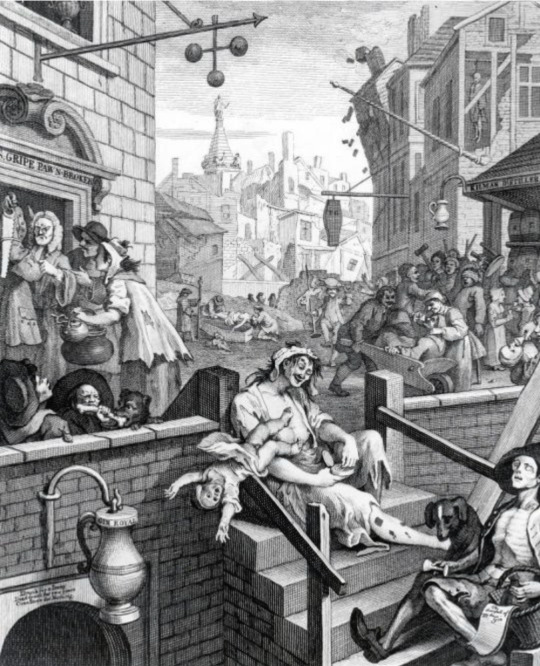
In William Hogarth’s 1751 print Gin Lane, a drunk mother neglects her baby, which falls to its death in a stairwell. Another mother doses her child with alcohol for a bit of peace. The men are blind drunk and skeletal, pawing their last rags to fund their gin habit.
How Charles Dickens Saw London
Charles Dickens soaked up the scene here too, but saw something utterly different. Passing through in 1835, he observed “streets and courts [that] dart in all directions, until they are lost in the unwholesome vapour which hangs over the house-tops and renders the dirty perspective uncertain and confined.” There were drunken women quarrelling—“Vy don’t you pitch into her, Sarah?”—and men “in their fustian dresses, spotted with brick-dust and whitewash” leaning against posts for hours. Seven Dials was synonymous with poverty and crime, a black hole to most Londoners...
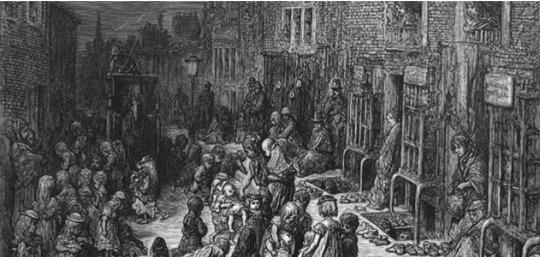
Williams argues effectively that ‘country’ and ‘city’ are not fixed archetypes so much as social constructs whose development is directly related to the growth of capitalism as a dominant economic mode.
Cities are seen today as the bastions of capitalism. But Williams argues that capitalism was first developed and mastered in the country beginning among the aristocratic landowning class of the 16th century.
The city was inextricably linked to this process as the center of trade and banking which these landowners depended on to consolidate wealth. As populations exploded as a result and necessity to fuel industrialized labor, the city transformed from a place of "civilized social transitions”of the wealthy to a den of overcrowded squalor in the popular and literary mindset. Consequently, the shrinking country became a nostalgic retreat of the bourgeois class and a location of travel to be enjoyed and observed by the wealthy.
In other words, the division that we are used to today (country = backwards but beautiful/city = progressive but ugly) is not actually a permanent reality but a constructed reality of the dominant landowning class. The meanings of both have shifted to serve the dominant narratives most useful to the ruling class at the time. Alex Laser
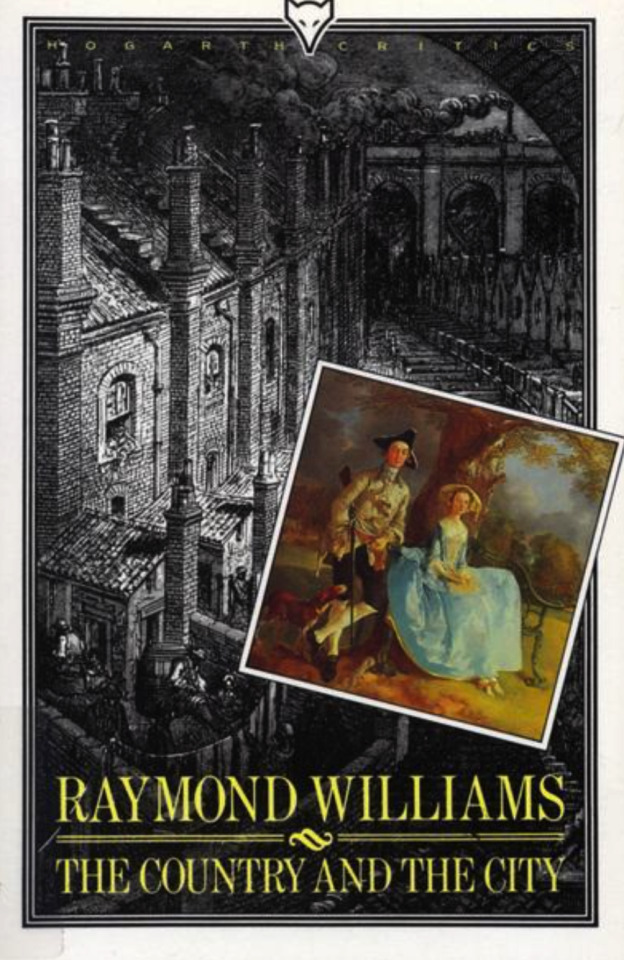
Published 1975 by Oxford University Press (orig.1973)
Film of Raymond Williams’ 1973 book of the same title which traces images of ‘nature’ and ‘town’ through 200 years of English literature. The connections Williams establishes as he traces the history of Tatton Park near Manchester - ‘an almost perfect example of how the English country house has influenced if not dominated our images of the country’ - are often startling and the film’s style continually illuminates the overall argument. All of the details taken from writers, painters, landscape artists and from 19th and 20th history of major urban centres are placed within a framework of class-based economic history - ‘the country and the city are parts of an interacting system dominated by a single class’- and the result is a unique TV essay. Michael Dibb, the director, has worked well with Williams to ensure that every image, every snatch of sound-track plays its part in the structure.
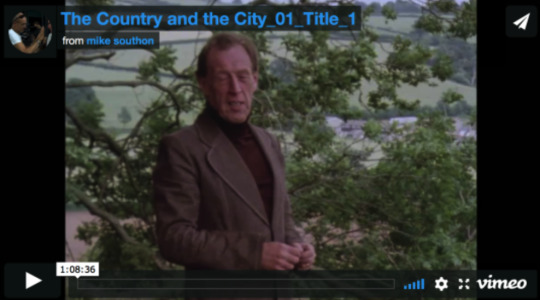
City provides an accessible yet critical introduction to one of the key concepts in human geography. Always at the heart of discussions in social theory, the definition and specification of the ‘city’ nonetheless remains exclusive. in this volume, Phil Hubbard locates the concept of 'the city' within current traditions of social thought, providing a basis for understanding its varying usages and meanings through a critical discussion of the contribution of key authors and thinkers. Written in a lively and accessible style, the individual chapters of City offer a thematic overview of four dominant ways of approaching cities: * as lived-in places * as imagined spaces * as networks of association * as technologies of flow. Drawing on a diverse range of literatures and case studies, the book spells out the importance of a geographical perspective on the city, suggesting that it is only by bringing these different ways of mapping the city together that we can begin to make sense of cities.
Mark Dion- Tate Thames Dig, 1999


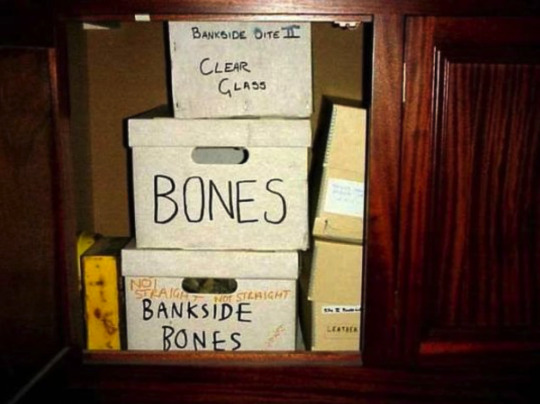
Cabinet of Curiosities (1690s) by Domenico Remps,Florence
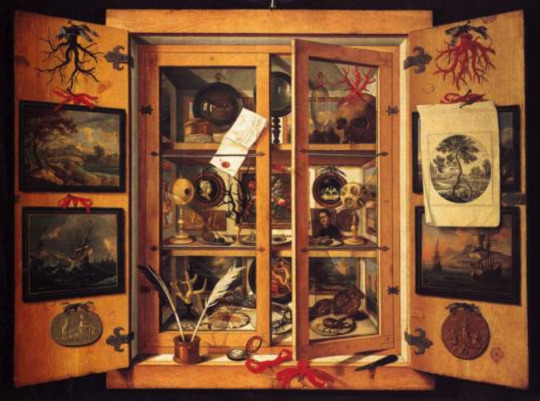
Pitt Rivers Museum, Oxford

‘Otherness’ and the City
Josephine Baker- Berlin, Paris and New York- 1920′s
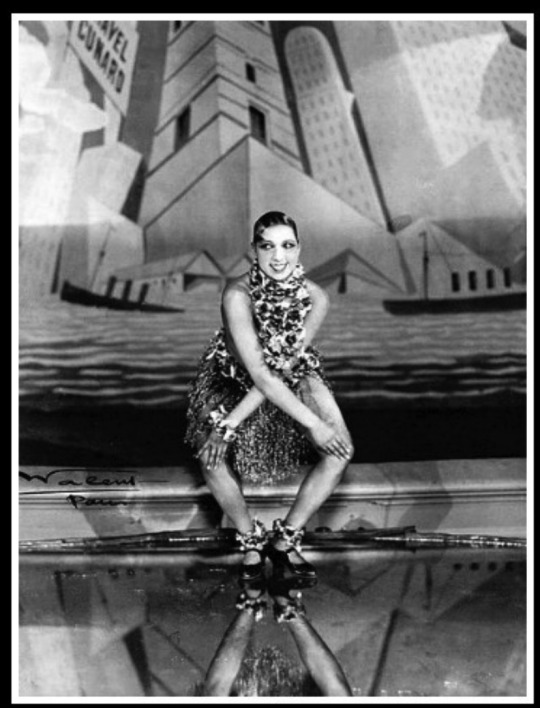
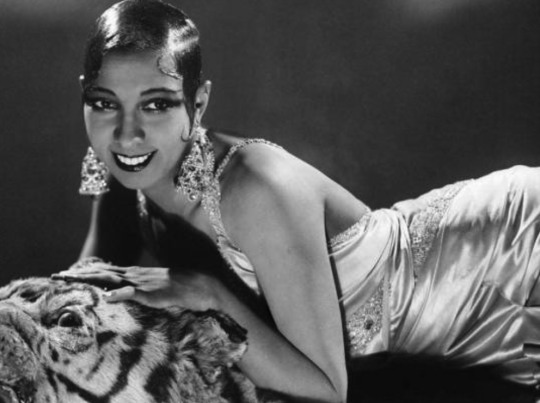
Metropolis, Fritz Lang, 1927
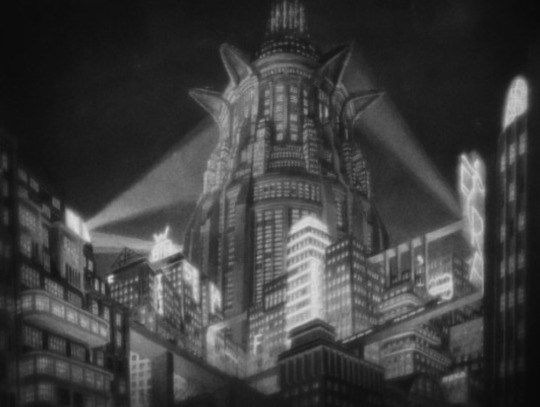
Fortunato Depreo, Skyscrapers and Tunnels (Gratticieli e tunnel), 1930 (detail)
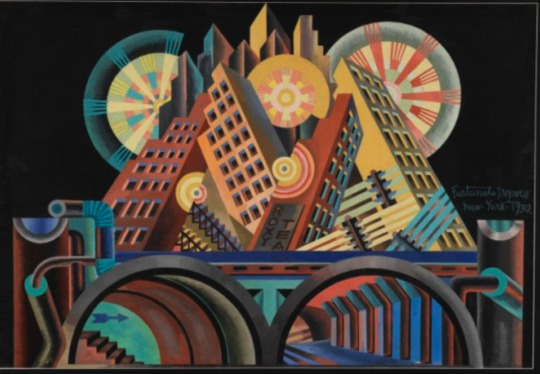
Dystopia
- An imagined place or state in which everything is unpleasant or bad, typically a totalitarian or environmentally degraded one.
Blade Runner, Ridley Scott 1982
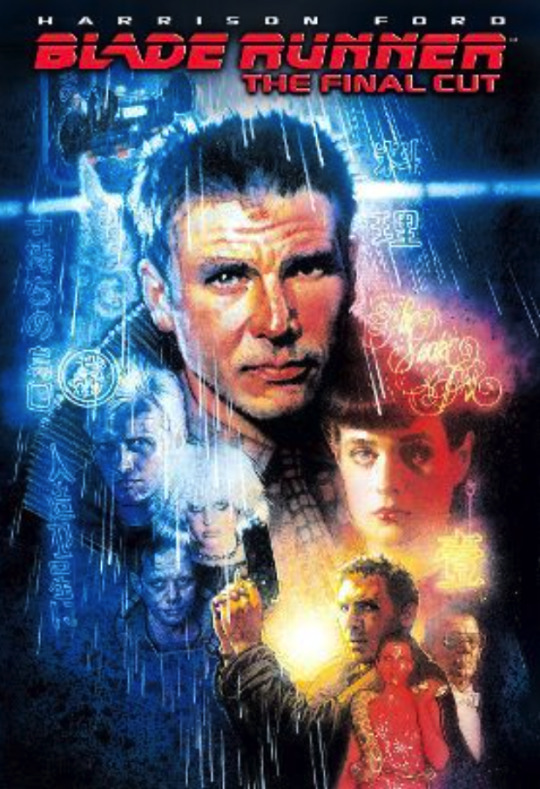
Hunger Games 2012
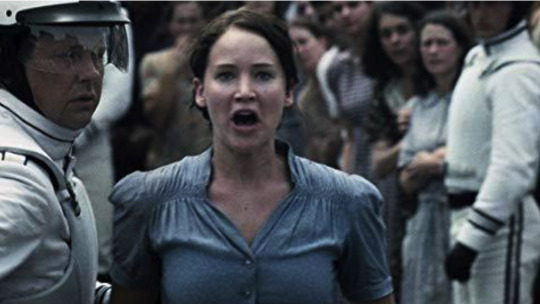
Lori Nix, ‘Mall’ 2010

Lori Nix, “Laundromat at Night,” 2008

Lori Nix, ‘Beauty Shop’ 2010

Gustav Metzger, Historic photographs: No. 1: Liquidation of the Warsaw Ghetto, April 19-28, 1943, 1995

Gustav Metzger, Historic Photographs

Gustav Metzger Kill the Cars, Camden Town, London 1996, 1996/2011, exhibited at New Museum

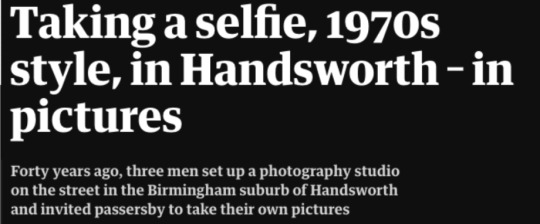
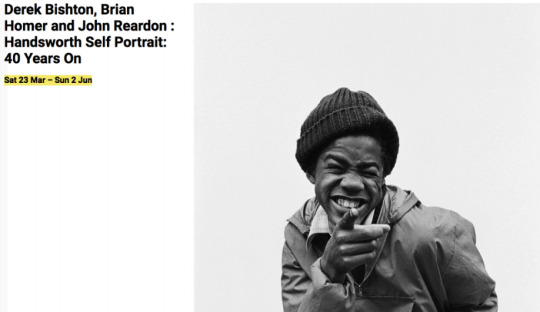


The Truman Show
Jim Carrey in The Truman Show directed by Peter Weir, 1998

References:
https://img.kingandmcgaw.com/imagecache/3/0/si-303179.jpg_maxdim-1000_resize-yes.jpg
https://thumbs-prod.si-cdn.com/xpCWe3WNIx5Xc1AwgixNU4_ZWdk=/fit-in/1600x0/https://public-media.si-cdn.com/filer/Sketches-by-Boz-Seven-Dials-631.jpg
https://blackwells.co.uk/jacket/l/9780701210052.jpg
https://www.mikesouthon.biz/portfolio/the-country-and-the-city01title1
https://www.tate.org.uk/art/images/work/T/T07/T07669_10.jpg
https://i.pinimg.com/originals/5a/f4/3c/5af43c218709876f17b503ba860d2140.jpg
https://www.tate.org.uk/sites/default/files/styles/width-600/public/thamesdigdisplay01.jpg
https://upload.wikimedia.org/wikipedia/commons/8/82/Cabinet_of_Curiosities_1690s_Domenico_Remps.jpg
https://www.experienceoxfordshire.org/wp-content/uploads/2017/03/Pitt-Rivers-Museum-Exhibits-36-1340x1005.jpg
http://thehistorychicks.com/wp-content/uploads/2013/01/JB-Charleston.jpg
https://i2.wp.com/pages.stolaf.edu/musicalgeography/wp-content/uploads/sites/648/2015/10/Josephine-Baker-940x705.jpg?fit=940%2C705&ssl=1
https://static1.squarespace.com/static/57ab44d32994cadd0f3c895d/57ac972f46c3c4d37f361990/58c80c2ddb29d6e875944b68/1491514730250/Metropolis-1927-di-Fritz-Lang-4.jpg?format=1000w
https://i1.wp.com/italmodart.wpengine.com/wp-content/uploads/2014/06/Grattacieli-tunnel-depero.jpg?resize=663%2C456
https://cps-static.rovicorp.com/2/Open/Warner_Home_Video_892/Program/63068/_9by13/_derived_jpg_q90_410x410_m0/26293605_Blade-Runner-The-Final-Cut_p1.jpg?partner=allrovi.com
https://m.media-amazon.com/images/M/MV5BMTM0NjQ4OTgyNV5BMl5BanBnXkFtZTcwOTU2MzQ4Nw@@._V1_CR0,60,640,360_AL_UX477_CR0,0,477,268_AL_.jpg
https://static1.squarespace.com/static/55d77558e4b05e2874c32d03/55d77d9de4b0f1c90e96510f/55d7a41fe4b04198b2025d97/1458395428152/Mall.jpg?format=1000w
https://clampart-cijwnnxfk.stackpathdns.com/wp-content/uploads/2012/04/Laudromat-at-Night-980x783.jpg
https://clampart-cijwnnxfk.stackpathdns.com/wp-content/uploads/2012/04/Beauty-Shop-980x735.jpg
https://uploads7.wikiart.org/images/gustav-metzger/historic-photographs-no-1-liquidation-of-the-warsaw-ghetto-april-19-28-days-1943-1995.jpg
https://uploads3.wikiart.org/images/gustav-metzger/historic-photographs-jerusalem-jerusalem-1998.jpg
https://designobserver.com/media/images/NewMuseum_GustavMetzger_ByBenoitPailley_1LR_525.jpg
https://www.theguardian.com/artanddesign/2019/mar/02/handsworth-photography-project-self-portraits-birmingham-john-reardon
https://media.vanityfair.com/photos/5b16a04623f287081510eaa8/master/w_768,c_limit/the-truman-show-anniversary-lede.jpg
0 notes
Text
The War Against Endless War Heats Up With Koch-Soros Salvo
Photo Illustration by Elizabeth Brockway/The Daily Beast/GettyIn “one of the most remarkable partnerships in modern American political history,” the left’s favorite enemy, Charles Koch, and the right’s favorite enemy, George Soros, are combining forces and finances to fund a new think tank, in Washington: The Quincy Institute for Responsible Statecraft that aims to end the American “forever wars” that have defined the first two decades of this millennium, and move past the foreign policy that led to them. Why Conservative Media and the Far Right Love Tulsi Gabbard for PresidentThe Institute is named in honor of John Quincy Adams, who when Secretary of State, wrote on July 4, 1821, an admonition to his fellow Americans to try not to spread American power abroad: [America] goes not abroad in search of monsters to destroy. She is the well-wisher to the freedom and independence of all. She is the champion and vindicator only of her own… She well knows that by once enlisting under other banners than her own, were they even the banners of foreign independence, she would involve herself, beyond the power of extrication, in all the wars of interest and intrigue, of individual avarice, envy, and ambition, which assume the colors and usurp the standard of freedom. The fundamental maxims of her policy would insensibly change from liberty to force… She might become the dictatress of the world: she would be no longer the ruler of her own spirit.This advice was revived by revisionist socialist historian William Appleman Williams in the late 1950s, and became a credo for anti-imperialist activists on the left. Arthur M. Schlesinger Jr., who while serving in the White House under John F. Kennedy, had been hostile to Williams, later began to reference Adams’ advice himself during the Vietnam War era. And in our current era, it is often referred to by writers in the pages of The American Conservative. Following Quincy’s approach, the Institute promises to work on “ending endless war,” “democratizing foreign policy,” and favoring diplomacy. The use of armed force,” its principles assert, “does not represent American engagement in the world.” Their attempt to build a bi-partisan think tank composed of opponents of the exercise of U.S. power abroad and of any military intervention, especially war, is not a new phenomenon. But it is a new attempt—this time with real money behind it in a $3.5 million first-year budget, including $500,000 each from Soros’s Open Society Foundation and the Charles Koch Foundation. Founding member and anti-interventionist scholar of the U.S. military and foreign policy Andrew Bacevich notes the group will invite “both progressives and anti-interventionist conservatives to consider a new, less militarized approach to policy” instead of “endless, counterproductive war.”That’s a position as old as the American century, and one again having a moment after 17 years of war in Afghanistan, and with 5,200 U.S. troops still in Iraq. It is one certain to gain support among editors of The Nation on the left, and The American Conservative on the right—both magazines that have published anti-interventionist articles by Bacevich. When the latter magazine debuted in 2002, I wrote that much of its content “could just as easily have appeared in the flagship publication of America’s left.” Both magazines have featured writers who oppose U.S. globalism, supported protectionism, and as the editors of The American Conservative put it, “point to the pitfalls of the global free trade economy” and warn against U.S. “global hegemony.” In today’s United States, those themes are even more invoked by many Trump supporters. What the think tank urges, it is clear, is opposition to any U.S. leadership that seeks to use American power on behalf of its goals, including that of democratization of authoritarian and totalitarian regimes. They see the problems in the world arising from the leaders of America seeking expansion of a hegemonic U.S. empire.Koch Brother Joins Fight to Stop America’s Involvement in the Yemen WarThe roots of this line of thought—which opposes U.S. power abroad in nearly all circumstances, and ascribes the world’s problems to American leaders seeking expansion—began in the 1930s, before Pearl Harbor, when influential figures of both the left and right belonged to the isolationist America First Committee. Its ranks included Norman Thomas, leader of the Socialist Party in the U.S, and conservative businessmen Robert E. Wood of Sears, Roebuck; H. Smith Richardson of the Vicks Chemical Company, and Chicago Tribune publisher Robert R. McCormick. Earl Browder, head of the American Communist Party, did not belong to the Committee, but had the Communist Party create its own new peace group (it ended it after Germany invaded the Soviet Union on June 22, 1941).After the end of World War II, as Harry S. Truman forged a bi-partisan coalition to assert American power to both fight Communism in Europe and to help Europe rebuild through the creation of NATO and the Marshall Plan, he received fierce opposition from the left and the right. Truman’s former Secretary of Commerce, Henry A. Wallace, worked along with Communists who favored a soft policy of cooperation with Stalin, and who accused the United States of aggression and favoring war. On the right, Robert A. Taft, the senior Senator from Ohio nicknamed “Mr. Republican,” initially opposed the Marshall Plan and, as did Wallace, opposed NATO. When the Communists in Czechoslovakia staged a coup in 1948, overthrowing one of the only countries in Eastern Europe that had a democratic pre-war heritage, Taft argued that the country rightfully belonged in Russia’s sphere of influence, the same argument made by Wallace. The Soviets, said Taft, were “merely consolidating their position.” No wonder Wallace said that Taft’s foreign policy “was most liable to keep the peace.” A Truman adviser, Joseph P. Jones, put his finger on the strange alliance when he wrote that the most outright opposition to Truman’s bi-partisan foreign policy came from “the extreme Left and the extreme Right… from a certain group of ‘liberals’ who had been long strongly critical of the administration’s stiffening policy toward the Soviet Union, and from the ‘isolationists,’ who had been consistent opponents of all foreign-policy measures that projected the United States actively into World Affairs.” The left-right alliance re-emerged during the heated and sometimes violent opposition to the Vietnam War. A formal attempt to build unity was started by the Old Right libertarian Murray N. Rothbard, and his free market colleague Leonard Liggio. They started a journal, aptly titled Left-Right, that I wrote for and which sought out anti-interventionist articles from both sides. Rothbard’s writings could be found in right-wing and libertarian outlets, as well as in the preeminent mass left-wing magazine, Ramparts, and the intellectual New Left publication, Studies on the Left. At one anti-Vietnam War rally, Liggio spoke alongside the late then-Marxist historian Eugene D. Genovese, who was well known for saying at Rutgers University during a teach-in, that he “welcomed the impending victory of the Viet Cong.” During Bill Clinton’s presidency, the left-right alliance appeared yet again while the U.S. supported the 1999 bombing of Serbia’s military infrastructure and it its capital city of Belgrade during the Kosovo war, as Serbs were undertaking massacres of the Bosnian Muslim population, and the Milosevic government of Yugoslavia engaged in repressive and violent acts against Kosovo Albanians. Leftists in the U.S. supported the opposition of the radical International Answer group, an offshoot of a Trotskyist communist sect. Pat Buchanan spoke at rallies opposing the bombing alongside the self-proclaimed Marxist columnist, Alexander Cockburn. A new group formed a website to tie their movement together, antiwar.com. After its founder Justin Raimondo died this week, National Review noted in his obituary that, “Like his political idol, the radical libertarian Murray Rothbard, Raimondo always had some new cockamamie left-right alliance against the respectable people in mind.” During the war in Iraq and the long war in Afghanistan, an informal left-right alliance again emerged. International Answer and Pink Code on the left held demonstrations, and on the right, Pat Buchanan spoke out frequently, always with a tinge of anti-Semitism, as he wrote about the Jewish administration members who brought us into the war—avoiding mention of all those in the Bush administration who weren’t. There’s Been a George Soros for Every Era of Anti-Semitic PanicAs Armin Rosen details in an investigatory report in Tablet, Charles Koch has already funded anti-interventionist foreign policy institutes at universities, including a prominent one at Harvard led by Stephen Walt, who co-authored with John Mearsheimer an influential 2007 book, The Israel Lobby. As Rosen writes, Koch’s main goal is to “build an intellectual and policy infrastructure to advance their ideas because their views often haven’t had much support within the Republican Party.” During Obama’s presidency, attempts were again made to forge a left-right coalition against an interventionist foreign policy. It was hard to accomplish, since Republicans and conservatives had a deep hatred for Obama, and Democrats a fierce opposition to any attempt to continue the previous Bush administration’s policies. Nevertheless, two leftist figures, Medea Benjamin of Code Pink and Wisconsin socialist scholar Paul Buhle, tried to do that with a Feb. 2010 conference called “A Left-Right Alliance Against War.” Working with Buchanan supporters, they sought to found a “patriotic antiwar movement” that they hoped would gain the support of business and military leaders “who have become opposed to extreme militarism.” Participating was Doug Bandow who worked in the Reagan administration, Jesse Walker from Reason magazine, and Daniel McCarthy from The American Conservative. Liberals attending included Nation magazine editor Katrina vanden Heuvel, Ralph Nader and Michael McPherson, representing Veterans for Peace. The group hoped to work as well with Ron Paul’s supporters and Pat Buchanan’s followers, thus bringing together paleoconservatives and libertarians.Buhle and co-author Dave Wagner believed for the first time, “we’ve arrived at that moment” when a left-right alliance could be created, and lead to “dialogue between Right and Left and even for common action against the war.” No other hopes existed for “confronting the war-drunk leadership of Republicans and Democrats alike.” Despite the goals of these few stalwarts, without important intellectual participants and no real money behind the group, nothing came out of their attempt. Now, with a president who himself leans to isolationism, a new institute combining opposition to the old mainstream foreign policy from both right and left, he and Soros obviously believe they finally have a real chance to change U.S. policy in the anti-interventionist direction. Elliott Abrams, now working on the Venezuelan issue in the State Department, told Rosen that “the isolationist arguments have more of an audience at both ends of the political spectrum,” and he feared that one should pause before saying “they can’t have any impact.”The institute also will work to urge Trump to soften a hard line towards Iran, and especially to get the U.S. to go back to the Iran deal negotiated by President Obama. One of its founding members, Trita Parsi, formerly head of The National Iranian-American Council, worked hard on behalf of the Obama policy. Leaving that group, he intends to carry on his work of changing U.S. policy towards Iran and urging Trump to follow that path through the Quincy Institute. Bacevich notes that if Trump follows their lead, and by “ignoring those who call for yet more war, he just might begin the process of repairing the damage done of late to this nation’s credibility.” A person close to the Quincy group told The National Interest, “Trump may come to realize that he can count on this diverse coalition, including the Quincy Institute, to back his moves to end endless wars.”Perhaps Columbia University Professor Stephen Wertheim and Mark Hanna of the Eurasia Group Foundation put it best, writing that if Democrats are smart, instead of just attacking Trump, they should offer “a genuinely pro-peace message-standing firmly against Trump’s bellicosity as well as decades of bipartisan military intervention.” It should be easy, they think, since Trump promised a new non-interventionist policy and failed to deliver it. Of course, not all their arguments are wrong; one can strongly oppose U.S. support of Saudi Arabia’s horrific war in Yemen, and still favor a strong leadership role for the United States. One thing is certain. Existing think tanks like The Heritage Foundation, Brookings Institute, American Enterprise Institute and the Carnegie Foundation will now have a serious run for their money. And indeed, Trump may listen to what they say. Read more at The Daily Beast.Get our top stories in your inbox every day. Sign up now!Daily Beast Membership: Beast Inside goes deeper on the stories that matter to you. Learn more.
from Yahoo News - Latest News & Headlines
Photo Illustration by Elizabeth Brockway/The Daily Beast/GettyIn “one of the most remarkable partnerships in modern American political history,” the left’s favorite enemy, Charles Koch, and the right’s favorite enemy, George Soros, are combining forces and finances to fund a new think tank, in Washington: The Quincy Institute for Responsible Statecraft that aims to end the American “forever wars” that have defined the first two decades of this millennium, and move past the foreign policy that led to them. Why Conservative Media and the Far Right Love Tulsi Gabbard for PresidentThe Institute is named in honor of John Quincy Adams, who when Secretary of State, wrote on July 4, 1821, an admonition to his fellow Americans to try not to spread American power abroad: [America] goes not abroad in search of monsters to destroy. She is the well-wisher to the freedom and independence of all. She is the champion and vindicator only of her own… She well knows that by once enlisting under other banners than her own, were they even the banners of foreign independence, she would involve herself, beyond the power of extrication, in all the wars of interest and intrigue, of individual avarice, envy, and ambition, which assume the colors and usurp the standard of freedom. The fundamental maxims of her policy would insensibly change from liberty to force… She might become the dictatress of the world: she would be no longer the ruler of her own spirit.This advice was revived by revisionist socialist historian William Appleman Williams in the late 1950s, and became a credo for anti-imperialist activists on the left. Arthur M. Schlesinger Jr., who while serving in the White House under John F. Kennedy, had been hostile to Williams, later began to reference Adams’ advice himself during the Vietnam War era. And in our current era, it is often referred to by writers in the pages of The American Conservative. Following Quincy’s approach, the Institute promises to work on “ending endless war,” “democratizing foreign policy,” and favoring diplomacy. The use of armed force,” its principles assert, “does not represent American engagement in the world.” Their attempt to build a bi-partisan think tank composed of opponents of the exercise of U.S. power abroad and of any military intervention, especially war, is not a new phenomenon. But it is a new attempt—this time with real money behind it in a $3.5 million first-year budget, including $500,000 each from Soros’s Open Society Foundation and the Charles Koch Foundation. Founding member and anti-interventionist scholar of the U.S. military and foreign policy Andrew Bacevich notes the group will invite “both progressives and anti-interventionist conservatives to consider a new, less militarized approach to policy” instead of “endless, counterproductive war.”That’s a position as old as the American century, and one again having a moment after 17 years of war in Afghanistan, and with 5,200 U.S. troops still in Iraq. It is one certain to gain support among editors of The Nation on the left, and The American Conservative on the right—both magazines that have published anti-interventionist articles by Bacevich. When the latter magazine debuted in 2002, I wrote that much of its content “could just as easily have appeared in the flagship publication of America’s left.” Both magazines have featured writers who oppose U.S. globalism, supported protectionism, and as the editors of The American Conservative put it, “point to the pitfalls of the global free trade economy” and warn against U.S. “global hegemony.” In today’s United States, those themes are even more invoked by many Trump supporters. What the think tank urges, it is clear, is opposition to any U.S. leadership that seeks to use American power on behalf of its goals, including that of democratization of authoritarian and totalitarian regimes. They see the problems in the world arising from the leaders of America seeking expansion of a hegemonic U.S. empire.Koch Brother Joins Fight to Stop America’s Involvement in the Yemen WarThe roots of this line of thought—which opposes U.S. power abroad in nearly all circumstances, and ascribes the world’s problems to American leaders seeking expansion—began in the 1930s, before Pearl Harbor, when influential figures of both the left and right belonged to the isolationist America First Committee. Its ranks included Norman Thomas, leader of the Socialist Party in the U.S, and conservative businessmen Robert E. Wood of Sears, Roebuck; H. Smith Richardson of the Vicks Chemical Company, and Chicago Tribune publisher Robert R. McCormick. Earl Browder, head of the American Communist Party, did not belong to the Committee, but had the Communist Party create its own new peace group (it ended it after Germany invaded the Soviet Union on June 22, 1941).After the end of World War II, as Harry S. Truman forged a bi-partisan coalition to assert American power to both fight Communism in Europe and to help Europe rebuild through the creation of NATO and the Marshall Plan, he received fierce opposition from the left and the right. Truman’s former Secretary of Commerce, Henry A. Wallace, worked along with Communists who favored a soft policy of cooperation with Stalin, and who accused the United States of aggression and favoring war. On the right, Robert A. Taft, the senior Senator from Ohio nicknamed “Mr. Republican,” initially opposed the Marshall Plan and, as did Wallace, opposed NATO. When the Communists in Czechoslovakia staged a coup in 1948, overthrowing one of the only countries in Eastern Europe that had a democratic pre-war heritage, Taft argued that the country rightfully belonged in Russia’s sphere of influence, the same argument made by Wallace. The Soviets, said Taft, were “merely consolidating their position.” No wonder Wallace said that Taft’s foreign policy “was most liable to keep the peace.” A Truman adviser, Joseph P. Jones, put his finger on the strange alliance when he wrote that the most outright opposition to Truman’s bi-partisan foreign policy came from “the extreme Left and the extreme Right… from a certain group of ‘liberals’ who had been long strongly critical of the administration’s stiffening policy toward the Soviet Union, and from the ‘isolationists,’ who had been consistent opponents of all foreign-policy measures that projected the United States actively into World Affairs.” The left-right alliance re-emerged during the heated and sometimes violent opposition to the Vietnam War. A formal attempt to build unity was started by the Old Right libertarian Murray N. Rothbard, and his free market colleague Leonard Liggio. They started a journal, aptly titled Left-Right, that I wrote for and which sought out anti-interventionist articles from both sides. Rothbard’s writings could be found in right-wing and libertarian outlets, as well as in the preeminent mass left-wing magazine, Ramparts, and the intellectual New Left publication, Studies on the Left. At one anti-Vietnam War rally, Liggio spoke alongside the late then-Marxist historian Eugene D. Genovese, who was well known for saying at Rutgers University during a teach-in, that he “welcomed the impending victory of the Viet Cong.” During Bill Clinton’s presidency, the left-right alliance appeared yet again while the U.S. supported the 1999 bombing of Serbia’s military infrastructure and it its capital city of Belgrade during the Kosovo war, as Serbs were undertaking massacres of the Bosnian Muslim population, and the Milosevic government of Yugoslavia engaged in repressive and violent acts against Kosovo Albanians. Leftists in the U.S. supported the opposition of the radical International Answer group, an offshoot of a Trotskyist communist sect. Pat Buchanan spoke at rallies opposing the bombing alongside the self-proclaimed Marxist columnist, Alexander Cockburn. A new group formed a website to tie their movement together, antiwar.com. After its founder Justin Raimondo died this week, National Review noted in his obituary that, “Like his political idol, the radical libertarian Murray Rothbard, Raimondo always had some new cockamamie left-right alliance against the respectable people in mind.” During the war in Iraq and the long war in Afghanistan, an informal left-right alliance again emerged. International Answer and Pink Code on the left held demonstrations, and on the right, Pat Buchanan spoke out frequently, always with a tinge of anti-Semitism, as he wrote about the Jewish administration members who brought us into the war—avoiding mention of all those in the Bush administration who weren’t. There’s Been a George Soros for Every Era of Anti-Semitic PanicAs Armin Rosen details in an investigatory report in Tablet, Charles Koch has already funded anti-interventionist foreign policy institutes at universities, including a prominent one at Harvard led by Stephen Walt, who co-authored with John Mearsheimer an influential 2007 book, The Israel Lobby. As Rosen writes, Koch’s main goal is to “build an intellectual and policy infrastructure to advance their ideas because their views often haven’t had much support within the Republican Party.” During Obama’s presidency, attempts were again made to forge a left-right coalition against an interventionist foreign policy. It was hard to accomplish, since Republicans and conservatives had a deep hatred for Obama, and Democrats a fierce opposition to any attempt to continue the previous Bush administration’s policies. Nevertheless, two leftist figures, Medea Benjamin of Code Pink and Wisconsin socialist scholar Paul Buhle, tried to do that with a Feb. 2010 conference called “A Left-Right Alliance Against War.” Working with Buchanan supporters, they sought to found a “patriotic antiwar movement” that they hoped would gain the support of business and military leaders “who have become opposed to extreme militarism.” Participating was Doug Bandow who worked in the Reagan administration, Jesse Walker from Reason magazine, and Daniel McCarthy from The American Conservative. Liberals attending included Nation magazine editor Katrina vanden Heuvel, Ralph Nader and Michael McPherson, representing Veterans for Peace. The group hoped to work as well with Ron Paul’s supporters and Pat Buchanan’s followers, thus bringing together paleoconservatives and libertarians.Buhle and co-author Dave Wagner believed for the first time, “we’ve arrived at that moment” when a left-right alliance could be created, and lead to “dialogue between Right and Left and even for common action against the war.” No other hopes existed for “confronting the war-drunk leadership of Republicans and Democrats alike.” Despite the goals of these few stalwarts, without important intellectual participants and no real money behind the group, nothing came out of their attempt. Now, with a president who himself leans to isolationism, a new institute combining opposition to the old mainstream foreign policy from both right and left, he and Soros obviously believe they finally have a real chance to change U.S. policy in the anti-interventionist direction. Elliott Abrams, now working on the Venezuelan issue in the State Department, told Rosen that “the isolationist arguments have more of an audience at both ends of the political spectrum,” and he feared that one should pause before saying “they can’t have any impact.”The institute also will work to urge Trump to soften a hard line towards Iran, and especially to get the U.S. to go back to the Iran deal negotiated by President Obama. One of its founding members, Trita Parsi, formerly head of The National Iranian-American Council, worked hard on behalf of the Obama policy. Leaving that group, he intends to carry on his work of changing U.S. policy towards Iran and urging Trump to follow that path through the Quincy Institute. Bacevich notes that if Trump follows their lead, and by “ignoring those who call for yet more war, he just might begin the process of repairing the damage done of late to this nation’s credibility.” A person close to the Quincy group told The National Interest, “Trump may come to realize that he can count on this diverse coalition, including the Quincy Institute, to back his moves to end endless wars.”Perhaps Columbia University Professor Stephen Wertheim and Mark Hanna of the Eurasia Group Foundation put it best, writing that if Democrats are smart, instead of just attacking Trump, they should offer “a genuinely pro-peace message-standing firmly against Trump’s bellicosity as well as decades of bipartisan military intervention.” It should be easy, they think, since Trump promised a new non-interventionist policy and failed to deliver it. Of course, not all their arguments are wrong; one can strongly oppose U.S. support of Saudi Arabia’s horrific war in Yemen, and still favor a strong leadership role for the United States. One thing is certain. Existing think tanks like The Heritage Foundation, Brookings Institute, American Enterprise Institute and the Carnegie Foundation will now have a serious run for their money. And indeed, Trump may listen to what they say. Read more at The Daily Beast.Get our top stories in your inbox every day. Sign up now!Daily Beast Membership: Beast Inside goes deeper on the stories that matter to you. Learn more.
July 09, 2019 at 09:38AM via IFTTT
0 notes
Text
Would you consider Jesus Christ to be a "failed messiah" who died claiming to be the Saviour? Who is the real Messiah?
Get back to me in 2:38:22. Let me ponder an adequate sarcasm.
COMMENTARY:
Jesus is close enough for government work as Messiahs go.
Here’s the thing: I’m cheating when I make a statement like that because I was killed in 1954 and came before Jesus, Son of God, who was judging between the quick and the dead and He glances at me and says “You be dead, but we’re sending you back as part of our Catch-and-Release program to off set Free Will and the nature of probability in a post-Newtonian collective reality”. He downloaded and bunch of other shit that Kant identifies correctly as “a priori” data. Kant doesn’t use “data”, per se, but if he was teaching Physics to day, filling in for Stephen Hawking at Cambridge. the stuff that classic epistemology identifies as “Platonic Forms” is celestial data. The mind of The One, as described in Revelation 4.2. Anyway, I got sort of a booster shot of Platonic Forms, but deliberately without a cognitive focus. My job has been to contrive a focus and surface this stuff as a demonstration of the mechanisms of the Lord’s Prayer as a format for action planning and implementation they emphasize in the Army Ranger School as a leadership tool that you learn to do while you are asleep. Literally. I was an honor graduate of my Ranger Class 7.70 as the administrative Platoon Leader for the gradutation. So, I’m just saying, when I’m talking about God, I’m talking at several levels about whatever shit they are selling as “The Inerrant Word of God” from crybabies like Jimmy Swaggart trying to channel his inner Janis Joplin for Jesus, Jesus,
Anyway, I was killed and standing in front of the sort of platform the Nazis used to separate the workers from the useless mouths, looking literally at the tips of His Toes coming out of the front of His sandels, being judged. It was like a sneeze: I downloaded all my life’s experience and He sucked it up like a righteous toke and we had this conversation that lasted no longer than 2 minutes, tops, and then, I resurfaced, literally, into my body floating face up in the Glen Echo pool and climbed out of the pool and went down to the Potomac end of the park and lay down on our blanket under the trees in the early champagne warmth of June inside the Beltway in 1954.
It’s like A Christmas Story. Or The Littliest Angel. Or A Child’s Christmas in Wale’s. A moment of when we are old enough to know we have lost our innocence and we try to pretend our way back to innocence, one last time for auld langs syne. The Parting Glass.
This is the moment in child development, about 7 years old, when we cease to be a Child of the Universe and lose our magical powers. A coming of age. At that moment, I became consciously aware of an on-going relationship with the Holy Spirit, which I mis-identified as God the Father because of the really bad theology being passed off as, well, the Word of God. The Jesus in charge of Selection the day I was killed was about the same apparent age as my dad, who 38. Jesus became eternal at 33. Jesus is a paradox. Finite and Infinite at the same time. Jesus’s mission as a card-carrying human being was to improve the epistemological link between individual human consciousness and the Mind of God and/or Platonic Forms or post-Newtonian a priori data. There is a debate largely anti-theist but evangelical in their zeal to promote a belief in nothing considering the proposition that Jesus wasn’t God before He was Resurrected, therefore, He doesn’t fit the Messianic protocols and, consequently, God is Dead.
It’s all bullshit. The Gospel of Mark is a very serious Military Intelligence assessment of something of enormous military value. They just didn’t know what the fuck to make of it, this whole walking away from a USDA certified Prime cut crucifixion being just the cherry on top of the sundae of weird things that happened around this raggedy-ass dude. The Gospel of Mark is a fascinating study in the Roman equivalent of MI5/MI6. Every pericope is the product of a vetted source, just like All The President’s Men. Or George Smiley conducting a very aggressive debriefing, And then assembled along a real-time log critical path. There is no question that Truman Capote’s journalism in In Cold Blood is based on the Synoptic Gospels as a model. There is not time-shifting in either In Cold Blood or the Gospel of Mark for interpretive purposes in the manner of Matthew and Luke. John Mark is the author of The Gospel of John and his time line begins with the first time he meets Jesus as a boy at the Caneen wedding and is still on the clock as he is composing the manuscript and he has total access to the Q source, which is a top secret Roman intelligence dossier Cornelius began to assemble when Jesus first appears above the Roman military horizon as a possible Jihadist and continues under a separate cover labeled “Christians”. Tiberius got an early intelligence report from this Q source between 33 and 37 and just saw enormous potential for social cohesion across the Empire.
There is another anti-theist movement I associate with Ken Humphries and Joseph Atwill, the Caesar Messiah, that is about half right that Christianity is a a Roman creation. But only about half-right. Because Cornelius got the idea for Jesus 37 years before Flavius and Josephus got together on Jesus from Jesus, Himself, by, first, committing suicide by crucifixion, and then showing up for dinner to talk about it, 3 days later.
Romans is a writ of conveyance of Jewish epistemology and ethic to whoever in Rome was maintaining a Q source dossier and manning the Christian desk. Theophilus gets my vote. Theophilus may either be the case file code name like Operation THEOPHILUS or Theophilus is the code name for the career case officer that manages the Q source as part of his over all reponsibilities and areas of influence. Not M, but a George Smiley. And Hebrews is the writ of possession of all things Jesus, but without the Jewish cultural baggage or the Law of Moses. Epistemology and Ethics, pure and simple. The epistemology of the Biblical narrative is inerrant, from In the Beginning, בְּרֵאשִׁ֖ית, to Ἀμήν⧽. Amen. And everything in between.
You can be a cold sober athiest and recognize this, psychologically. The ethic of citizenship endorsed Rome’s concept of the secular rule of law base in contrast to the aesthetic of the Law of Moses (and similar social constructs). Rome, as represented by the Praetorian Guard and the Italian Cohort Cornelius emerged from before his posting to Palestine, appropriates Jesus for its own purposes with the Epistle to the Hebrews some time during Nero’s persecutions and coincidental with the compostion of Revelation on Patmos. Christianity would not become a cohesive force in the Empire until it acquired a critical mass at the Medvian Bridge and Constantine made it the law of the land with the Council of Nicea but then would dismantle the Praetorian Guard and create a decadent theocracy.
And all of this is a result of Jesus. That isn’t a portrait of failure. From the Roman military perspective, Jesus endorses Socrates’ model of citizenship expressed in the Apology. The epistemology of Socrates/Plato/Aristotle begins with the Parable of the Chariot and runs, straight as a laser from the Cup of Hemlock to the Cross to F=MA to E-MCC to the patterns of the pixels running in front of your eyeballs as my fingers flex and push and shape the thoughts arising in your mind in some manner that has become an irrational reflex of data acquistion that my making you conscious of that process pisses you off in some manner of perverse violation of the ecology of your mind.
The Holy Spirit made me do it. The thing is, I’m talking about Jesus at the same level Yoda fucked with Luke’s mind as a bachelor Jedi Knight. Jesus is the model for the Servant Leadership of Jedi Knights. They spring from the same de oppresso liber republican tradition of the Green Berets.
But I digress. Do I think Jesus is a failed Messiah?
Get back to me in 2:38:22. Let me ponder an adequate sarcasm.
0 notes